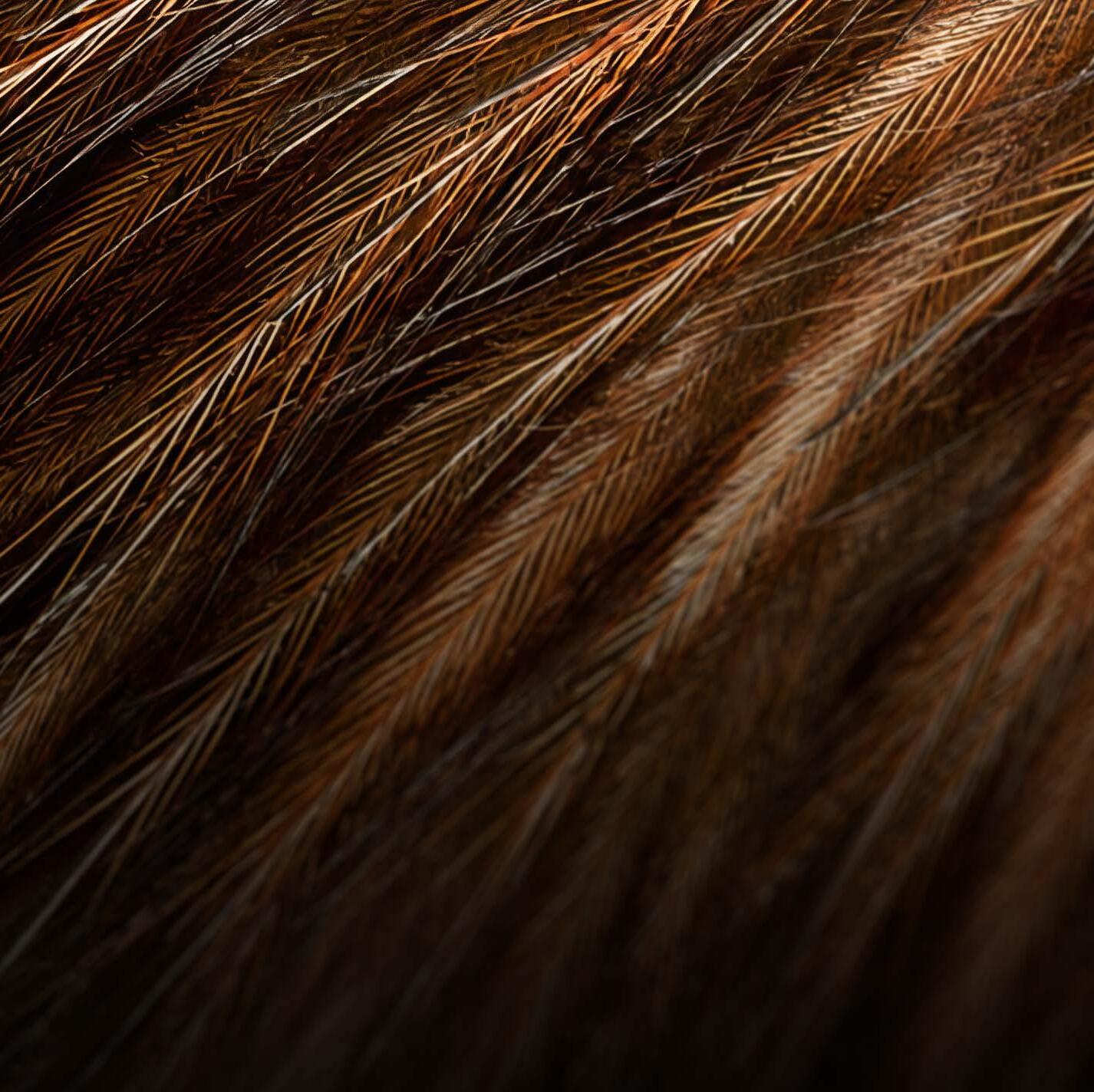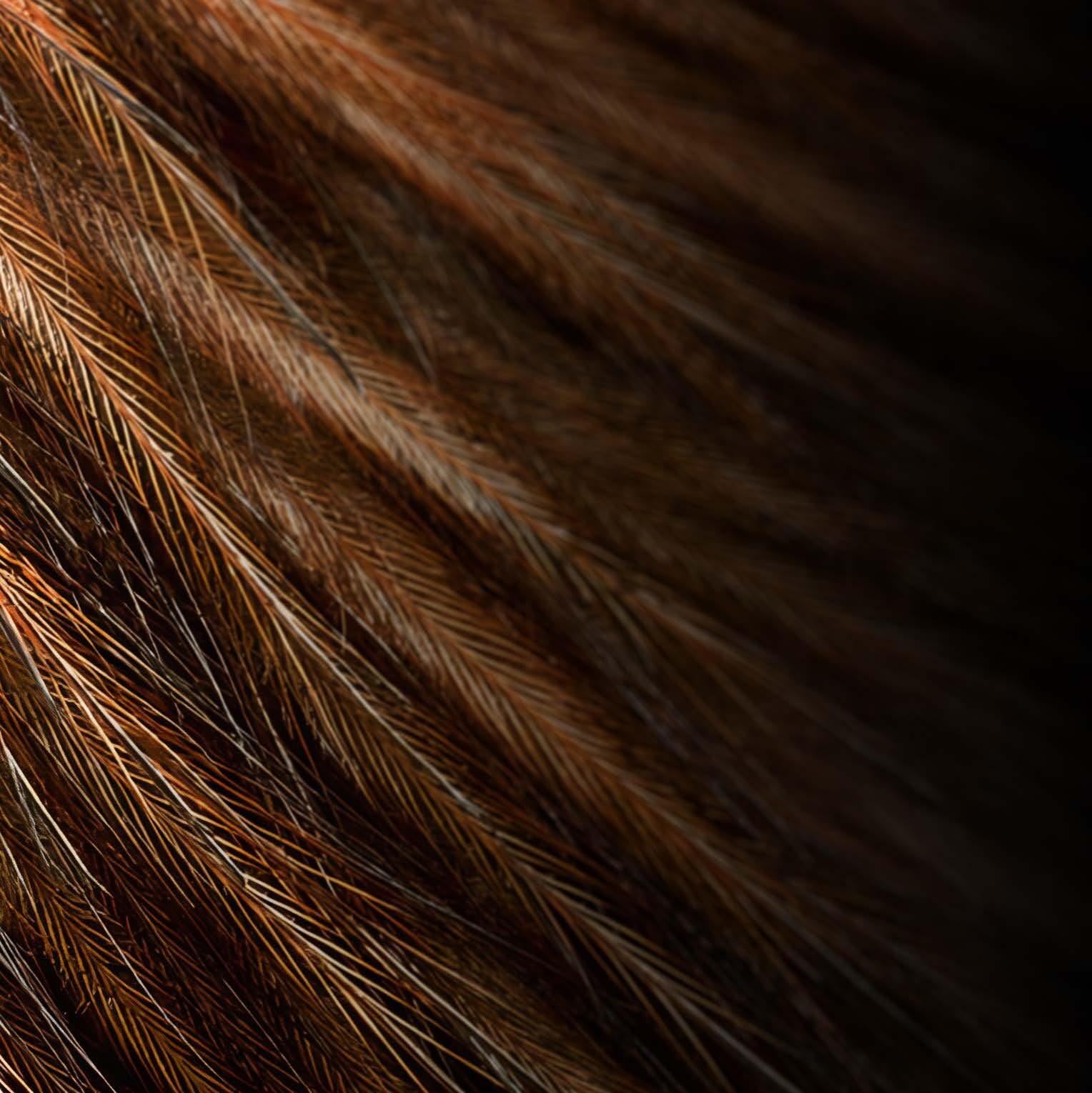
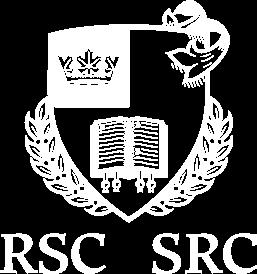
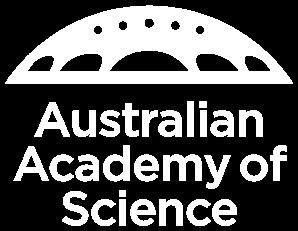
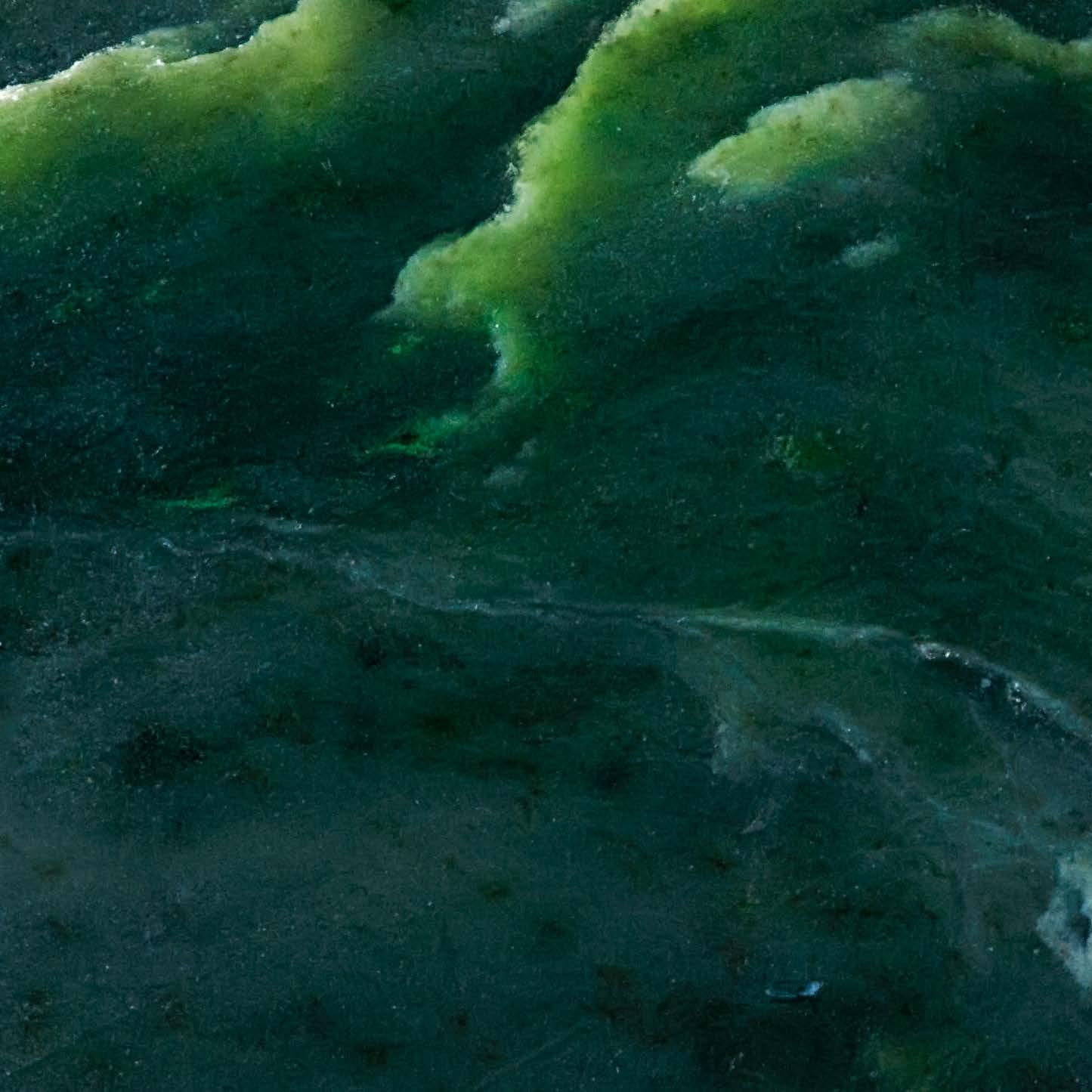






Indigenous Fellows, thought leaders, and knowledge holders from Aotearoa New Zealand, Canada, and Australia will progress the kaupapa (agenda) of collaborative international Indigenous-led research.
1
Leading and shaping international research agendas to include Indigenous knowledges and practices to solve pressing challenges.
2
Transforming academia for Indigenous peoples: addressing structural racism, epistemic violence, and inequities to reduce barriers for Indigenous scholars and students.
3
Indigenising the academy by ensuring shared decisionmaking and genuine recognition of Indigenous knowledge and scholarship.

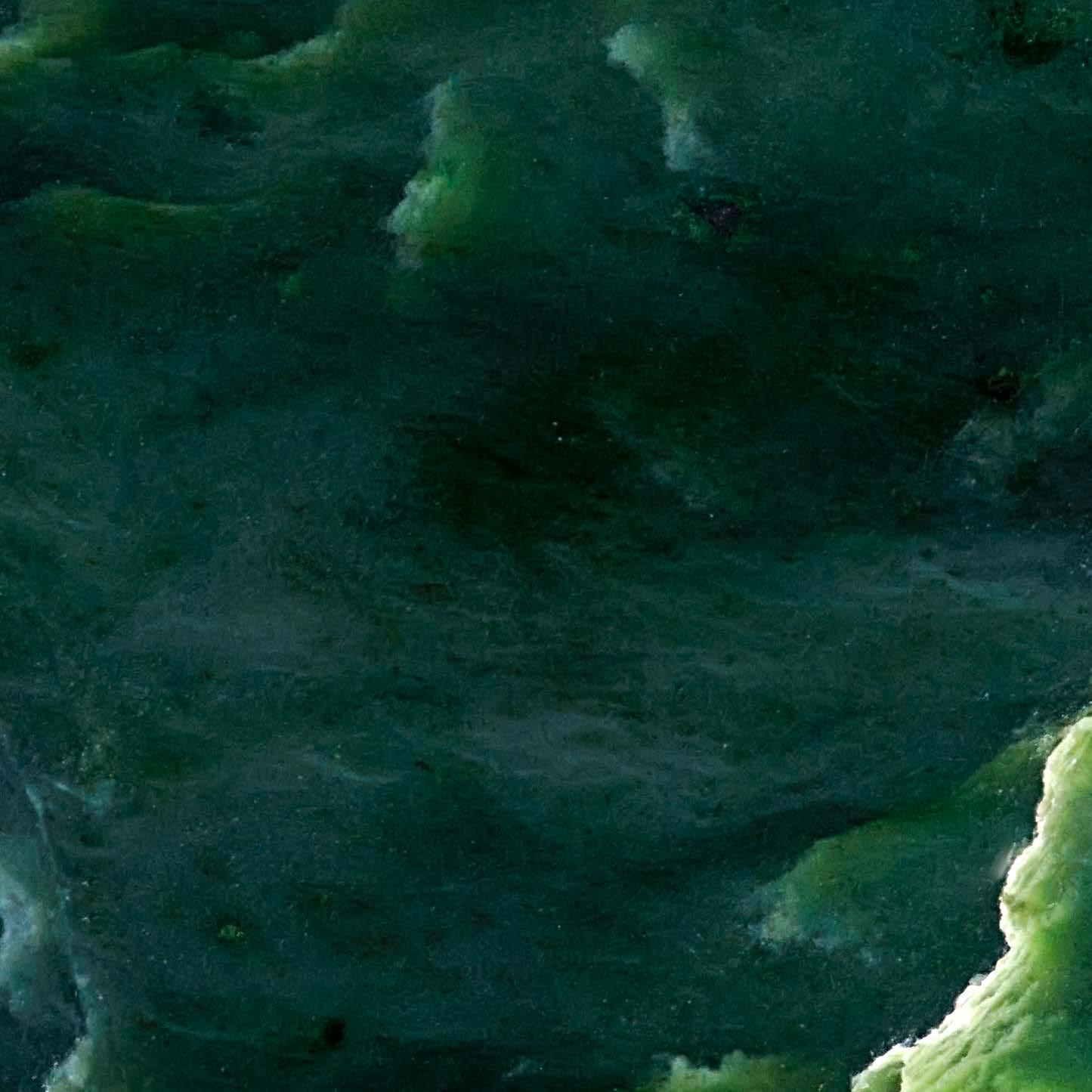
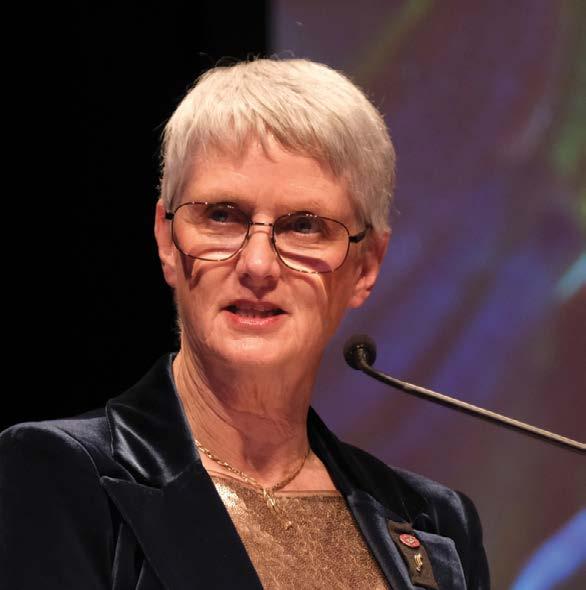

Nau mai, haere mai ki Taikura.
The Royal Society Te Apārangi welcomes you to the Tri-Academy Indigenous Summit in Aotearoa New Zealand.
The 2025 Summit is the second of three planned by the Royal Society Te Apārangi, the Royal Society of Canada, and the Australian Academy of Science. The three academies have agreed on the need to engage with Indigenous scholars and researchers in their respective countries, and to share and celebrate their achievements.
The inaugural Tri-Academy Partnership on Indigenous Engagement was hosted by the Royal Society of Canada on the unceded territories of the xwməθkw əy ̓əm (Musqueam), Skwxwú7mesh (Squamish), and səlilwətaɬ/Selilwitulh (Tsleil-Waututh) nations on 5–6 November 2024.
This year’s event is being held in Tāmaki Makaurau Auckland, on 24–26 November. The programme for the Summit has been developed by a group of Ngā Ahurei (Māori Fellows) from the Royal Society Te Apārangi who participated in the Vancouver Summit in collaboration with Indigenous leaders from the Royal Society of Canada and the Australian Academy of Science. Co-led by Professor Gail Gillon FRSNZ and Professor Anthony Hōete FRSNZ, they

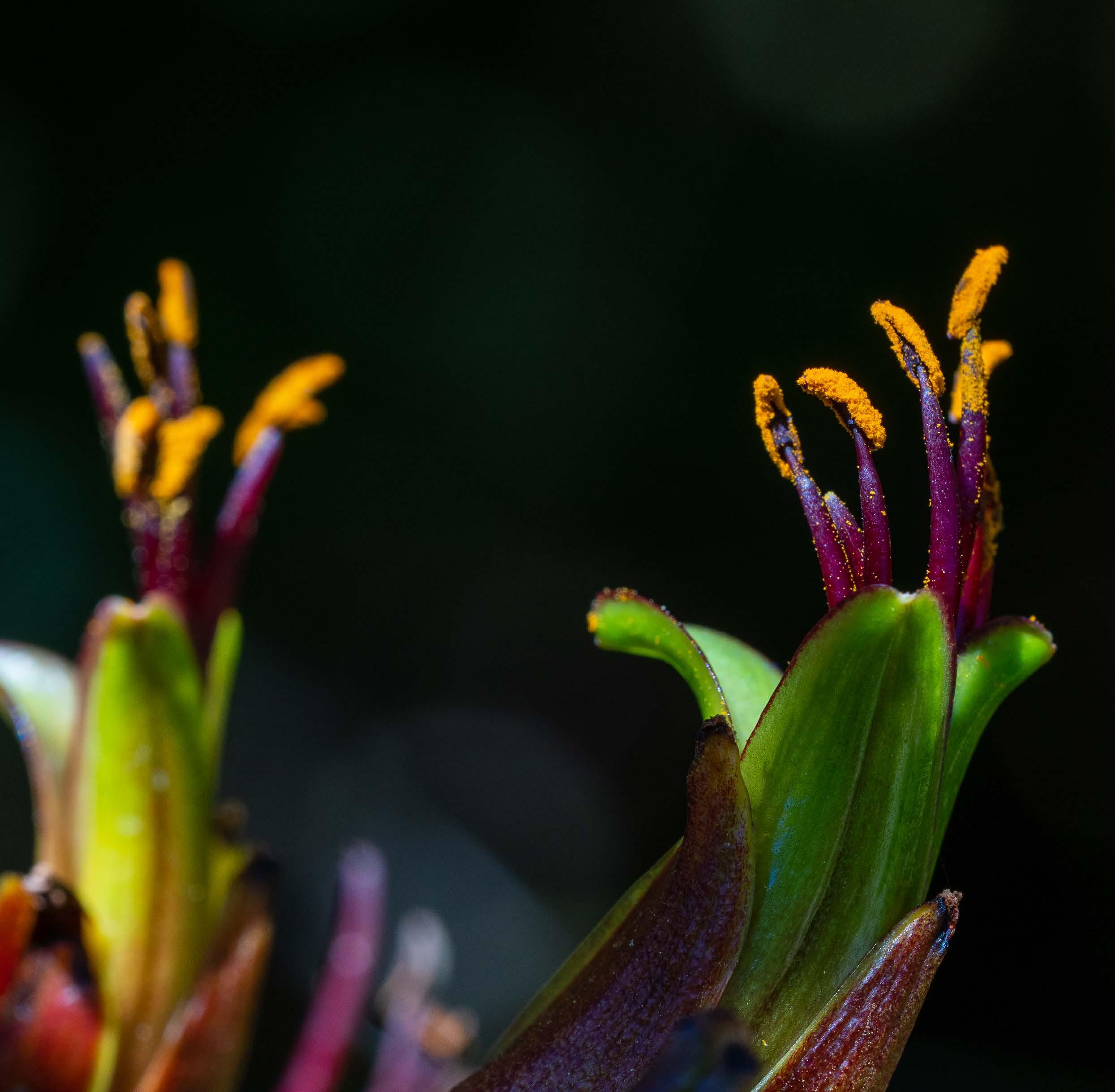

have established themes for the Summit – of addressing academic barriers and inequities for Indigenous students and scholars, of sharing decision-making in the academy, of recognising Indigenous knowledge and scholarship, and of shaping research agendas to include Indigenous knowledge and solve pressing challenges.
These themes align with several of the goals the Society has agreed to prioritise as part of our long-term strategy, set in 2023. Our strategy was based on achieving the Society’s purpose: growing knowledge pathways to enable science and research to be shared for the benefit of all. To do this, we agreed to build and maintain reciprocal relationships with Māori – grounded in mutual respect and values – and to embed the spirit and intent of Te Tiriti o Waitangi into our policies and practices, and instil te ao Māori dimensions into our relationships, culture, and values.
Taikura, the name gifted to this Summit, reflects our aspirations and refers to an opening or gateway, symbolising the opportunity and responsibility to nurture future potential. Taikura embodies the spirit of learning, knowledge, and
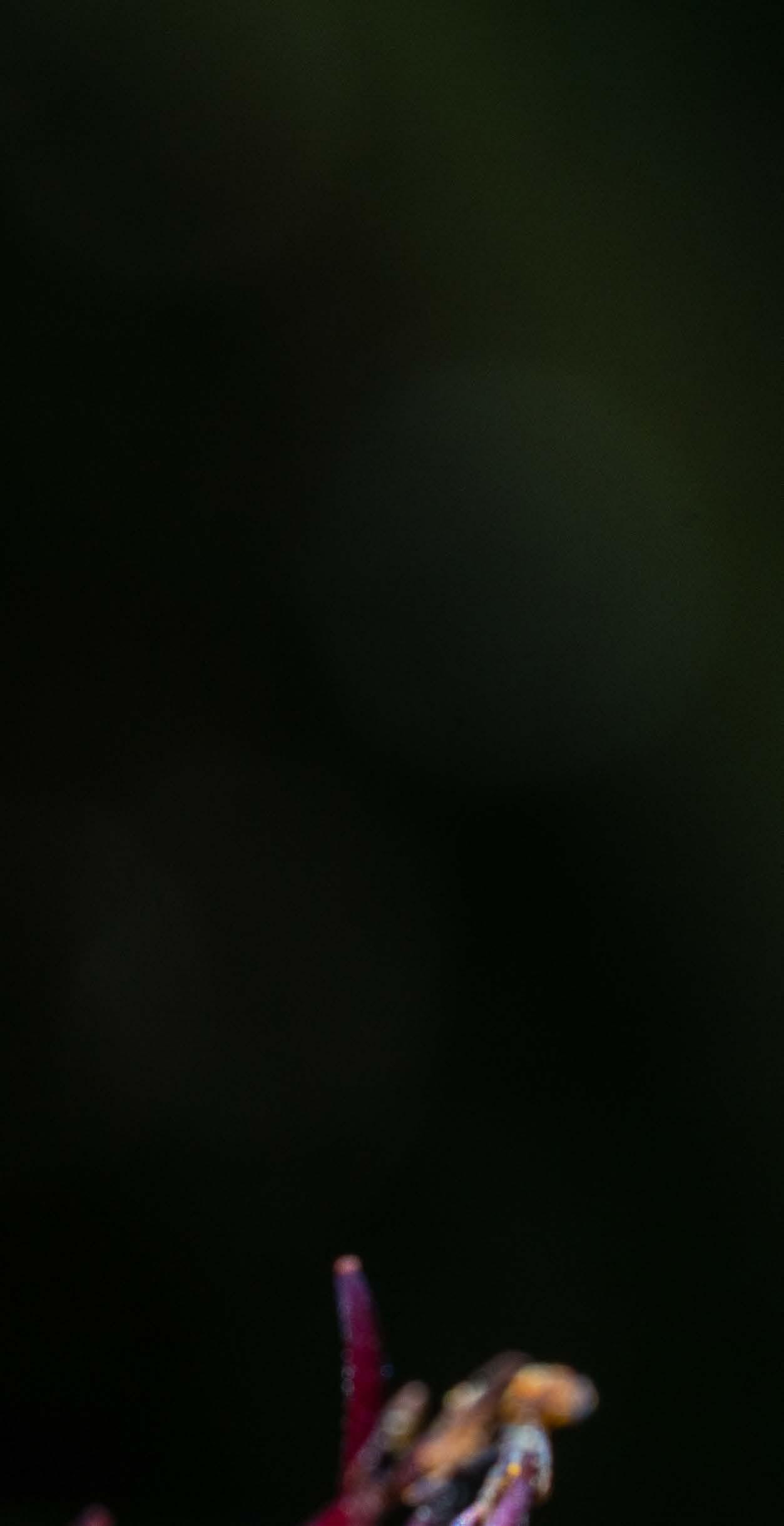
connection that underpins the themes of the Summit, and our ongoing journey to elevate Indigenous research.
We thank all the Fellows and other scholars who have contributed to planning the Taikura Summit. We are also grateful to our hosts at Te Wānanga Aronui o Tāmaki Makaurau – the Auckland University of Technology (AUT), Tītahi ki TUA the AUT Māori Students’ Association, and to the mana whenua, Ngāti Whātua o Ōrākei.
We look forward to hearing from the Fellows and scholars visiting from Australia and Canada, and from our own Fellows, scholars, and researchers from all around Aotearoa New Zealand and the Pacific Islands. We hope to learn more about opportunities and challenges for Indigenous research and researchers, and how we can collaborate best to advance our shared goals.
Ngā mihi nui,

Distinguished Professor Dame Jane Harding
DNZM FRACP FRSNZ
Tumuaki | President, Royal Society Te Apārangi

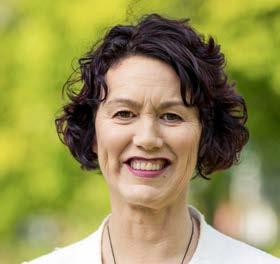
Professor Gail Gillon FRSNZ (Ngāi Tahu)
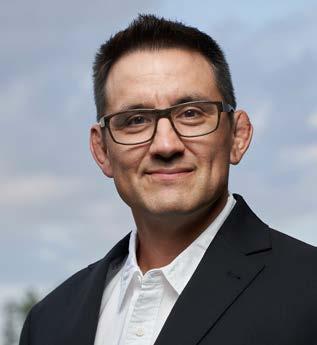
Professor Frank Deer Royal Society of Canada (Kanienkeha’ka from Kahnawake)
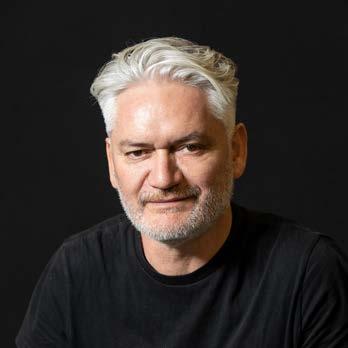
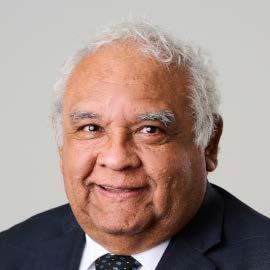
Professor Anthony Hōete
FRSNZ
Ngāti Awa, Ngāti Rānana)
Professor Tom Calma AO FAA
FASSA FAHA
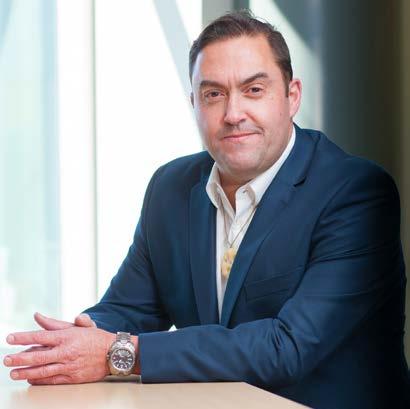
Australian Academy of Science (Kungarakan, Iwaidja)
Professor Jarrod Haar FRSNZ
Ngāti Maniapoto, Ngāti Mahuta)
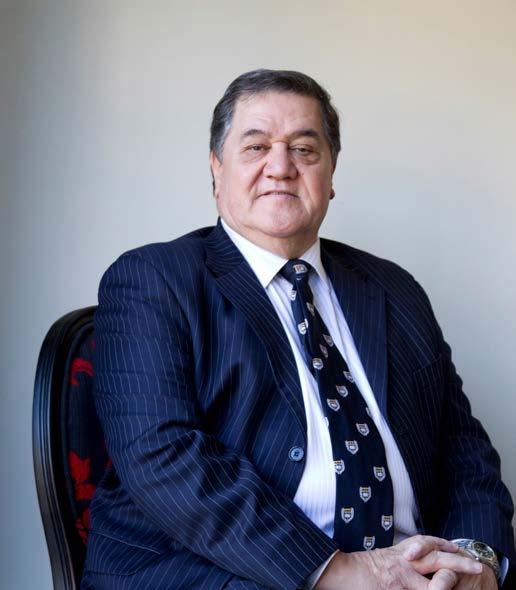
Distinguished Professor Graham Hingangaroa
Smith CNZM FRSNZ
Ngāti Apa, Te Aitanga a Hauiti, Ngāti Kahungunu, Kāti Māmoe)
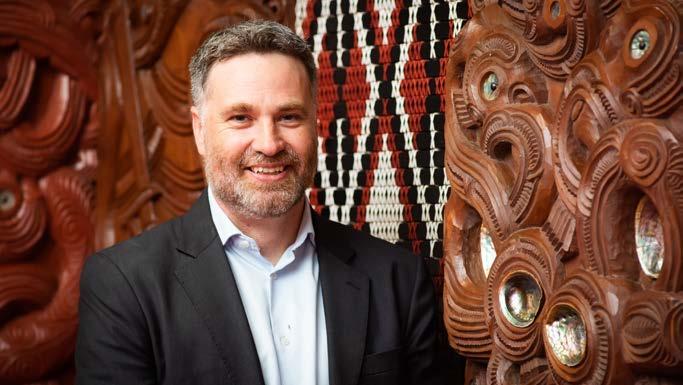
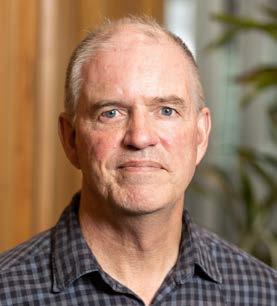
Dr Carwyn Jones
Ngāti Kahungunu ki
Professor Paul Kilmartin FRSNZ (Ngāi Tahu)
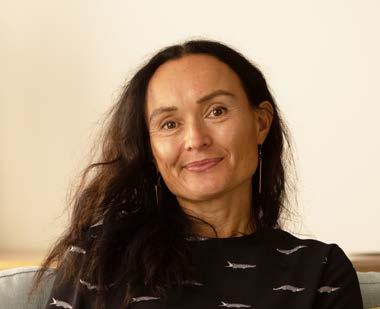
Professor Tahu Kukutai FRSNZ
Ngāti Tiipa, Ngāti
Māhanga, Ngāti Kinohaku, Te Aupōuri)

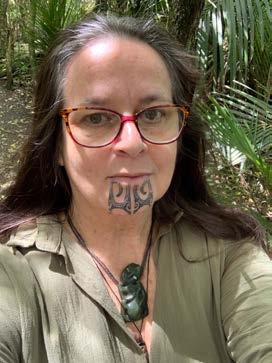
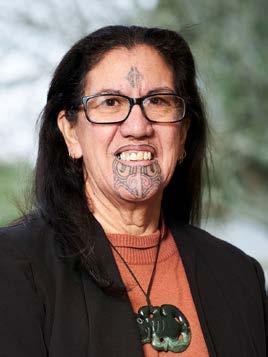
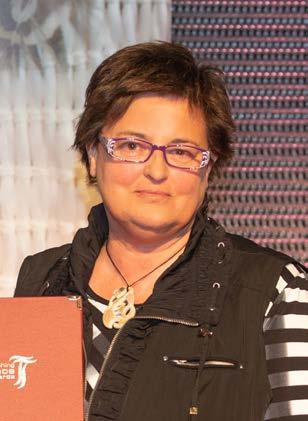
Professor Helen Moewaka Barnes
FRSNZ
(Te Kapotai, Ngāpuhi -nui-tonu)
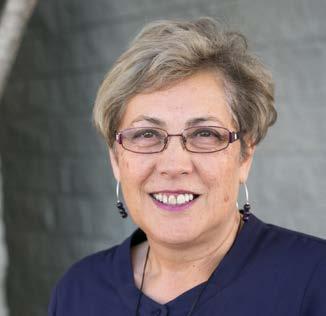
Professor Leonie Pihama FRSNZ
(Te Ātiawa, Taranaki, Waikato)
Distinguished Professor Michelle ThompsonFawcett FRSNZ
(Ngāti Whātua)
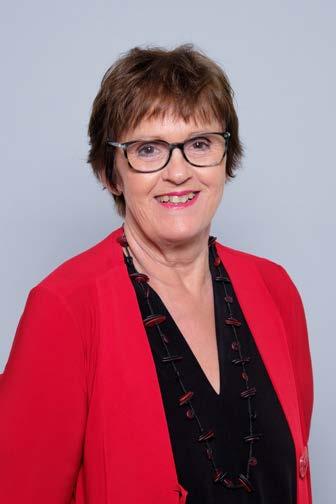
Distinguished
Professor Linda
Tuhiwai Smith
CNZM FRSNZ
(Ngāti Awa, Ngāti Porou)
Professor Denise Wilson FRSNZ
(Tainui, Ngāti Porou ki Harataunga, Whakatōhea, Ngāti Oneone, Ngāti Tūwharetoa)

MONDAY, 24 NOVEMBER 2025 TIME TOPIC
13:30 Manuhiri (guests) to meet in the foyer (by the Newsfeed Café)
Tītahi ki Tua, Professor Tahu Kukutai and Paora Ammunsen will explain the tikanga (cultural protocol) for the pōwhiri.
14:00 Pōwhiri – Welcome ceremony
Paramanawa – Afternoon tea
14:50 Welcome from Kaiārahi Kōrero – Master of Ceremonies for Summit
• Professor Meihana Durie
14:55 Introduction from Summit Leads – Ngā Ahurei Māori a Te Apārangi
• Professor Gail Gillon
• Professor Anthony Hōete
15:00 Origins of the Tri-Academy partnership, the inaugural Summit in Vancouver, and themes for the Taikura Summit
• Professor Frank Deer
• Professor Tom Calma
• Professor Helen Moewaka Barnes
15:25 Cultural
17:25 Whanaungatanga – building connections
• Professor Leonie Pihama
18:00 Welcome reception with Kaiārahi Kōrero
• Professor Meihana Durie
Foyer (Level 3)
Te Iringa (Mezzanine)
Te Iringa
Te Iringa
Foyer
TUESDAY, 25 NOVEMBER 2025

• Professor Meihana Durie
09:10 Opening statements by Tri-Academy Presidents
• Distinguished Professor Dame Jane Harding (Aotearoa New Zealand)
• Emerita Professor Françoise Baylis (Canada)
• Emeritus Professor Chennupati Jagadish (Australia)
THEME 1: LEADING AND SHAPING INDIGENOUS RESEARCH AGENDAS
09:25 KEYNOTE: Indigenous thought leadership (Aotearoa)
• Distinguished Professor Sir Tā Hirini Moko Mead
• Distinguished Professor Linda Tuhiwai Smith
10:00 Discussion, led by Kaiārahi Kōrero
10:05 Panel: Research to drive flourishing Indigenous futures – Insights and experiences
• Associate Professor Daniel Hikuroa
• Professor Margaret Kovach
• Professor James Ward
11:00

TUESDAY, 25 NOVEMBER 2025 TIME TOPIC
11:30 What Indigenous research looks like when we set our own research agenda: Aotearoa
• Dr Marnie Reinfelds
• Manu Caddie
• Dr Joni Angeli-Gordon
• Dr Amohia Boulton
• Distinguished Professor Graham Hingangaroa Smith
12:20 Discussion, chaired by Professor Graham Hingangaroa Smith
12:30 What Indigenous research looks like when we set our own research agenda: Canada
• Assistant Professor Jaris Swidrovich
• Professor David Garneau
• Professor Kisha Supernant
• Professor Frank Deer
• Kahsennarò:roks Maddy Deom
13:05 Discussion, chaired by Professor Frank Deer
13:15 Kai o te rā nui – Lunch Networking session for early-career researchers
14:00 What Indigenous research looks like when we set our own research agenda: Australia
• Professor Jason Sharples
• Professor Dawn Bessarab
• Professor Clint Bracknell
• Professor Chris Matthews
14:35 Discussion, chaired by Professor Chris Matthews
TUESDAY, 25 NOVEMBER 2025

14:45
Concurrent Wānanga A: Strategic connections in international Indigenous research
• Professor Tahu Kukutai
• Distinguished Professor Emerita Maggie Walter
Concurrent Wānanga B: Creating Indigenous research spaces
• Dr Carwyn Jones
• Professor Annie Pullen Sansfaçon
THEME 3: INDIGENISING THE ACADEMY
16:20 Panel discussion:
• Distinguished Professor Jacinta Ruru
• Associate Professor Shino Konishi
• Professor Aimée Craft Discussion, led by Kaiārahi Kōrero
17:15 He kupu whakakapi – closing remarks
•
•
WEDNESDAY, 26 NOVEMBER 2025

9:00 Welcome from Kaiārahi Kōrero
• Professor Meihana Durie
9:05 Reflections on Day 1 and draft communique
• Professor Gail Gillon
• Professor Anthony Hōete
• Professor Tahu Kukutai
THEME 2: TRANSFORMING ACADEMIA FOR INDIGENOUS PEOPLES
9:15
9:55 Concurrent wānanga C: Sharing actionable measures
• Assistant Professor Marti Ford
• Professor Yin Paradies
Concurrent wānanga D: Indigenous workforce in research, science, and innovation
• Associate Professor Deb Heke
• Emeritus Professor Poia Rewi

WEDNESDAY, 26 NOVEMBER 2025
•
•
•
• Professor
•
FRSNZ: Fellow of the Royal Society Te Apārangi
FRSC: Fellow of the Royal Society of Canada
FAA: Fellow of the Australian Academy of Science
FRS: Fellow of the Royal Society (London)
FAHMS: Fellow of the Australian Academy of Health and Medical Sciences
FASSA: Fellow of the Academy of the Social Sciences in Australia
FAHA: Fellow of the Australian Academy of the Humanities
FRACP: Fellow of the Royal Australasian College of Physicians
FASHA: Fellow of the American Speech-Language and Therapy Association
FISC: Fellow of the International Science Council
AC: Companion of the Order of Australia
AO: Order of Australia
CM: Member of the Order of Canada
CNZM: Companion of the New Zealand Order of Merit
DNZM: Dame Companion of the New Zealand Order of Merit
KNZM: Knight Companion of the New Zealand Order of Merit
MNZM: Member of the New Zealand Order of Merit
ONS: Order of Nova Scotia

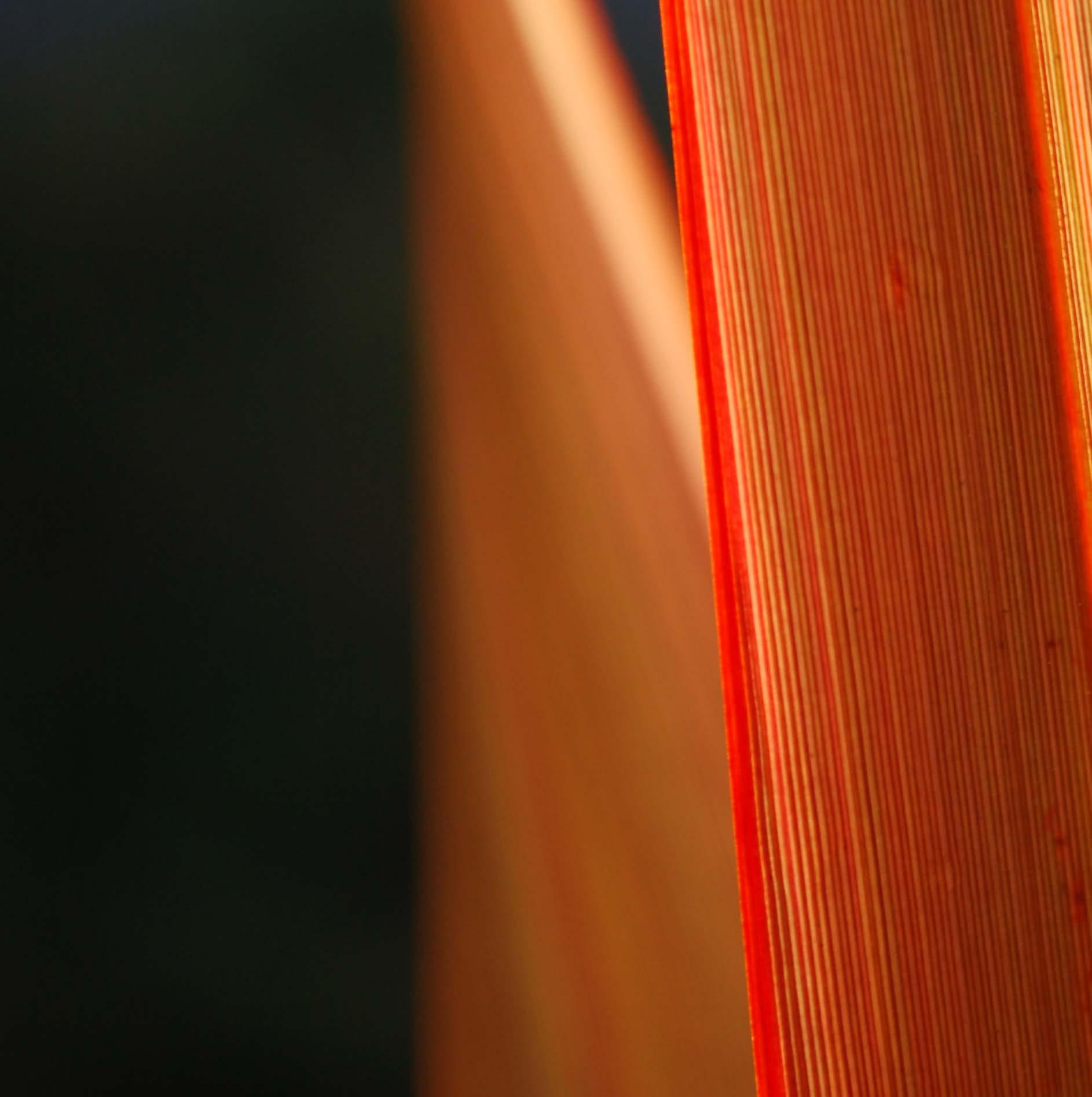

Kaiārahi Kōrero – Master of Ceremonies for the Summit
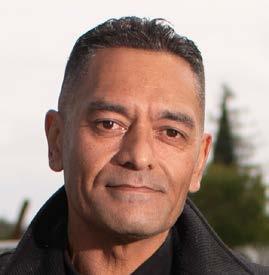
Professor Meihana Durie
(Rangitāne, Ngāti Kauwhata, Ngāti Raukawa ki Te Tonga, Ngāti Porou, Rongowhakaata, Ngāi Tahu)
Meihana Durie is Te Toi Aronui at Te Wānanga Aronui o Tāmaki Makaurau –the Auckland University of Technology (AUT), and the Tumuaki – Chief Executive, at Te Wānanga o Raukawa. His research expertise centres on Māori education, health, mātauranga Māori, and te reo Māori (traditional Māori knowledge and language). He has also co-directed an award-winning short film, Warbrick. Previously, Meihana was the Deputy ViceChancellor Māori and Head of Te Pūtahi-aToi – the School of Māori Knowledge at Te Kunenga ki Pūrehuroa – Massey University.
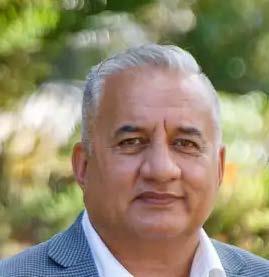
Paora Ammunsen (Ngāti Kahungunu, Rangitāne o Wairarapa, Te Arawa, Tainui)
Paora Ammunsen is Deputy Vice-Chancellor Māori at Te Kunenga ki Pūrehuroa – Massey University. He is a prominent Māori leader who was previously the Deputy Chief Executive at Te Pūkenga – New Zealand’s Institute of Skills and Technology, and currently chairs the Ngāti Kahungunu ki Wairarapa Tāmaki Nui ā Rua Trust.

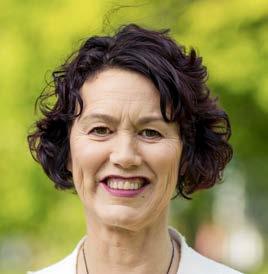
Professor
Gail Gillon
FRSNZ FASHA
(Ngāi Tahu)
Gail Gillon is the founding Director of the Child Well-being Research Institute at Te Whare Wānanga oWaitaha – the University of Canterbury. She is also the UNESCO NZ Commissioner for Education. She was a Co-Director for the Better Start National Science Challenge E Tipu E Rea - a 10 year programme of research focused on advancing children's health, education and wellbeing. She is an international expert in children's speech, language, and literacy development and has won several research awards for her advancement of knowledge in the field. Her research has culminated in the development of Te Ara Reo Matatini – the Better Start Literacy Approach, a culturally responsive and evidence-based approach to the teaching of literacy which is being implemented in over 1000 primary schools across New Zealand
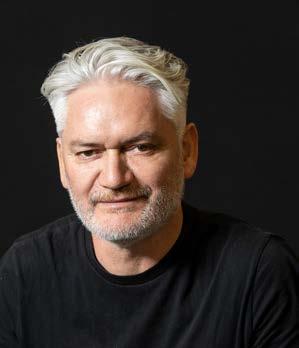
Professor Anthony Hōete FRSNZ
(Ngāti Awa, Ngāti Rānana)
Anthony Hōete is the founding director of WHAT_architecture, a London-based architecture practice which co-created a school from more than a million Lego® bricks, and Game of Architecture Ltd, a London-based property development company set up to build affordable housing. After 30 years working in the United Kingdom and Europe, he returned, to work at Waipapa Taumata Rau – the University of Auckland. Anthony is working on transdisciplinary community-led research spanning architecture, archaeology, structural engineering, property, planning, and climate change. He has studied and tested mātauranga Māori (traditional knowledge) about construction, demonstrating that the mīmiro technique can be used to build full-scale timber structures that can withstand major earthquakes and meet modern requirements for seismic resilience.

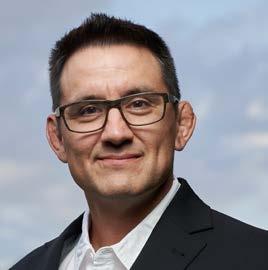
Professor Frank Deer (Kanienkeha’ka)
Frank Deer is Kanienkeha’ka from Kahnawake, a community in the Rotinonshón:ni Confederacy in southeastern Canada. Frank’s current research and teaching at the University of Manitoba is focused on Indigenous education, identity studies, citizenship education, the philosophy of education, and Indigenous religious and spiritual orientations. He investigates and promotes the ways in which primary and secondary education supports important dimensions of the journey of Indigenous peoples toward the affirmation of their respective identities: their languages and perspectives toward spirituality. Frank is a past President of the Royal Society of Canada’s College of New Scholars, Artists, and Scientists.

Tom Calma was Chancellor of the University of Canberra for 10 years, and now sits on the Senate for the University of Sydney. Tom has dedicated his career to advancing Indigenous rights, education, economic development, and equity in health and social and emotional wellbeing. Tom has served as Australia’s Race Discrimination Commissioner and as the Aboriginal and Torres Strait Islander Social Justice Commissioner. In these roles, he championed the campaign to “Close the Gap” on ethnic disparities for health, mental health, and lifeexpectancy. He is a former senior diplomat, and has had many governance roles in the public health and education sectors. Tom was made an Officer of the Order of Australia to acknowledge his many contributions to Australian society, particularly in advancing Indigenous wellbeing, social justice and inclusivity, and educational opportunities for First Nations peoples. Tom is an elected Fellow of three Australian Academies, reflecting his exceptional interdisciplinary impact.
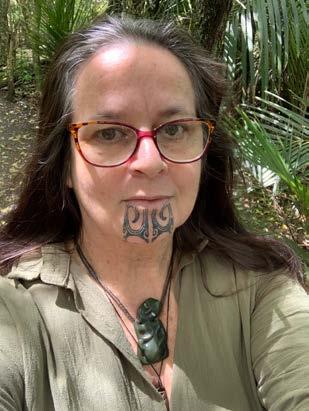
(Te
Helen Moewaka Barnes is the Director of Whāriki, a Māori research group at Te Kunenga ki Pūrehuroa –Massey University, in Auckland. She is also Co-Director of the SHORE research group, which works closely with Whāriki in a partnership process grounded in Te Tiriti o Waitangi. Under Helen’s leadership over three decades, Whāriki has addressed a range of critical issues for Māori communities, including health inequities, social determinants of wellbeing, and the effects of colonisation. Helen is a recognised expert in community-led and kaupapa Māori research methods that centre mātauranga Māori (traditional knowledge). Through her scholarship and mentorship, Helen has shaped practices for how other researchers engage with Māori communities.

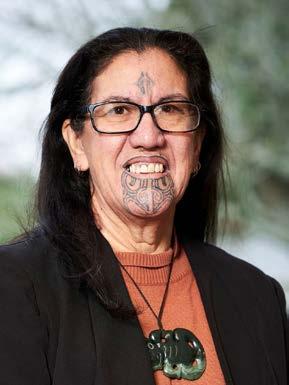
Professor Leonie
Pihama FRSNZ
(Te Ātiawa, Ngāti
Māhanga, Ngā
Māhanga ā Tairi)
Leonie Pihama is an expert in Indigenous education, kaupapa Māori research, and Māori development. Her research has examined the impacts of colonisation on Māori communities, and explored methods to champion tino rangatiratanga (self-determination) and revitalise Māori language, culture, health, and wellbeing. Her research spans Kura Kaupapa Māori and Te Kōhanga Reo (Māori-medium education), whānau development, and mana wāhine theory, which is centred on the experiences and empowerment of Māori women. Through her
teaching, research, and mentorship, she has helped to develop and promote kaupapa Māori research methodologies, which prioritise Māori worldviews, values, and practices. Her scholarship has shaped how Indigenous knowledge systems are understood and valued within research institutions across Aotearoa New Zealand. Leonie’s work extends beyond academia into empowerment of communities, where she actively supports Māori aspirations for meaningful social change through educational transformation and cultural regeneration.

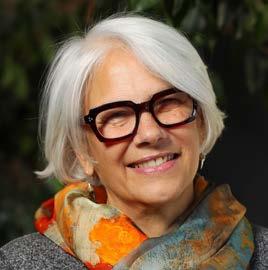
Distinguished Research
Professor Emerita
Françoise Baylis
C.M. O.N.S. PhD
FRSC FISC
Françoise Baylis is a philosopher and bioethics scholar at Dalhousie University, renowned for pioneering research at the intersection of healthcare ethics, policy, and practice. She advocates for ethical and inclusive approaches to science and biotechnology, challenging conventional bioethics and pushing for broader, deeper thinking on health, science, technology, and public policy. She is the author of the award-winning book Altered Inheritance: CRISPR and the Ethics of Human Genome Editing. In 2022, Baylis received the Queen Elizabeth II Platinum Jubilee Medal and the Killam Prize for the Humanities. In 2023 she was awarded the Molson Prize in Humanities from the Canada Council for the Arts. Baylis is a Member of the Order of Canada and the Order of Nova Scotia. She serves on the Governing Board of the International Science Council and is President of the Royal Society of Canada. www.francoisebaylis.ca
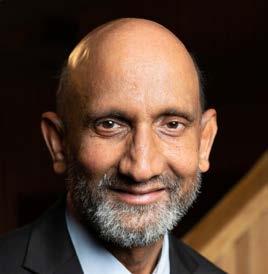
Emeritus Professor Chennupati
Jagadish AC PresAA
FRS FREng FTSE
(Telugu)
Chennupati Jagadish is an Emeritus Professor of Physics and Electronic Materials Engineering at the Australian National University. His research has encompassed semiconductor physics, materials science, optoelectronics, and nanotechnology. Jagadish has published more than 800 peerreviewed journal papers, co-authored a book, and edited 15 books. He is the Editor-in-Chief of Applied Physics Reviews and serves on the editorial boards of 20 other journals. His many international awards include a United Nations (UNESCO) Medal for contributions to the development of nanoscience and nanotechnologies, the Nanotechnology Pioneer Award and the Photonics Award from the Institute of Electrical and Electronics Engineers, and the Pravasi Bharatiya Samman Award, which is the highest honour conferred by the President of India for achievement by Indians overseas. He is President of the Australian Academy of Science, and has been elected a Fellow by 16 Academies in Australia, Europe, China, India, the United Kingdom, and the United States of America.
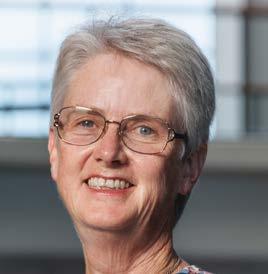
Professor Dame
Jane Harding
DNZM FRACP FRSNZ
Jane Harding is an academic neonatologist whose research on perinatal growth and development has both advanced knowledge and improved real-world outcomes for mothers and babies. She identified the impact of neonatal hypoglycemia on brain development, and pioneered a simple effective treatment that has become the standard of care worldwide. Her research has earned the Prime Minister’s Science Prize, the Beaven Medal, and the Rutherford Medal, New Zealand’s highest academic honours. Internationally, she has received the Siegel Outstanding Science Award from the American Pediatric Society and the Howard Williams Medal from the Royal Australasian College of Physicians. In addition to research, teaching, and practice in clinical medicine, Jane has held senior leadership or governance roles with the Liggins Institute, the NZ Perinatal Society, the Perinatal Society of Australia and NZ, the Paediatric Society of NZ, the Health Research Council of NZ, the Royal Australasian College of Physicians, the University of Auckland, Universities NZ, and the Worldwide Universities’ Network.

Keynote: Indigenous thought leadership (Aotearoa)
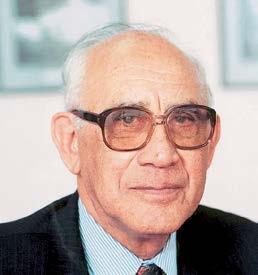
Sir Sidney (Hirini Moko) Mead KNZM
FRSNZ
(Ngāti Awa, Ngāti
Tūwharetoa, Ngāi Tūhoe, Ngāti Manawa, Tūhourangi
Hirini Moko Mead is a writer, commentator, composer, artist, and tribal leader. His publications include authoritative texts on Tikanga Māori and Mātauranga Māori (traditional knowledge and cultural practices). He was foundation professor of Māori Studies at Te Herenga Waka Victoria – University of Wellington and the inspired founder of Te Whare Wānanga o Awanuiārangi in Whakatāne. He was elected as a Fellow of the Royal Society of New Zealand in 1990. He was leader of Ngāti Awa and negotiated the Settlement with the Crown that included the return of the Mataatua Wharenui. He was also co-curator of the Te Māori exhibition to the Metropolitan Museum of New York. He was made a Distinguished Companion of the New Zealand Order of Merit in 2026 and received a knighthood in 2009 for his services to Māori and to education. Today he resides in his tribal lands as an elder, a tribal leader, and a koro (grandfather) to all.
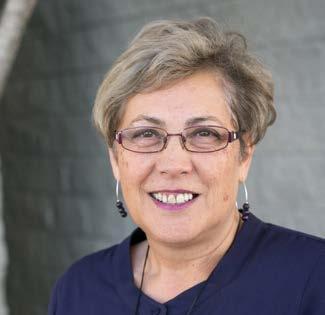
Distinguished Professor Linda Tuhiwai Smith CNZM
FRSNZ
(Ngāti Awa, Ngāti Porou)
Linda Tuhiwai Smith, based at Te Whare Wānanga O Awanuiārangi, was awarded the Rutherford Medal in 2023 for her preeminent role in advancement of education and research for te ao Māori and for Indigenous peoples globally. Her scholarship has spanned Mana Wāhine feminist discourses; Māori health, wellbeing, and social justice; understanding of historical and intergenerational trauma; and Kaupapa Māori education and research methods. Her seminal book, Decolonizing Methodologies: Research and Indigenous Peoples, challenged conventional research paradigms and proposed alternatives based on ethical frameworks and Indigenous knowledge. Linda has dedicated her career to creating intellectual spaces for students and researchers that allow them to embrace their identities and transcend dominant narratives within education and academia.

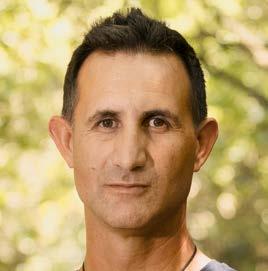
Associate Professor Daniel Hikuroa
(Ngāti Maniapoto, Waikato-Tainui, Ngāti Whanaunga)
Dan Hikuroa is an earth systems scientist at Waipapa Taumata Rau – the University of Auckland. His work ranges from assessing geothermal areas to restoring polluted rivers, lakes, and wetlands, and from adapting to coastal changes to managing the risks of floods, earthquakes, and volcanoes. Dan works for the United Nations Educational, Scientific and Cultural Organisation as New Zealand’s UNESCO Commissioner for Culture. In 2024, he won Te Puāwaitanga Research Excellence Medal for his work with communities to use both Indigenous knowledge and science to protect and restore ecosystems.
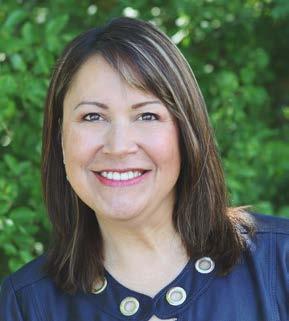
Professor Margaret Kovach
(Nêhiyaw and Saulteaux)
As a member of the Pasqua First Nation in Saskatchewan, Margaret Kovach is currently the Academic Director of Ts” kel Indigenous Educational Leadership and Resurgence at the University of British Columbia. Her publications include Indigenous Methodologies: Characteristics, Conversations, and Contexts, through the University of Toronto Press, and she was a co-editor of the anthology Royally Wronged: The Royal Society of Canada and Indigenous Peoples, through McGill-Queen’s University Press. Her research explores how universities can enhance experiences for Indigenous students and scholars, and how members of university communities might work, learn, and live at the intersectionality of diversity in service of peaceful, compassionate, and socially just relations.
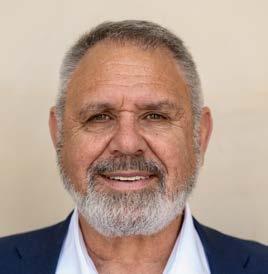
Professor James Ward FAHMS (Pitjantjatjara, Narungga)
James Ward is Director of the Poche Centre for Indigenous Health at the University of Queensland. An infectious disease specialist and epidemiologist, he has worked to promote health for Aboriginal people and Torres Strait Islanders, with a particular focus on prevention and control of sexually transmitted infections. His results have informed policy, clinical guidelines, and resourcing, particularly for HIV and viral hepatitis. He leads several largescale research projects for public health in urban, regional, and remote communities. He was pivotal in guiding Australia’s COVID-19 response, particularly for Indigenous peoples. In 2024, Professor Ward was awarded the inaugural Outstanding First Nations Researcher Medal, and in 2026 he commences as an Australian Research Council Laureate Fellow.

What Indigenous research looks like when we set our own research agenda – Aotearoa
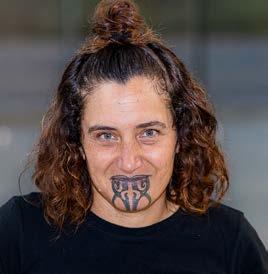
Dr Marnie Reinfelds
(Ngāti Mutunga, Taranaki, Te Ātiawa)
Marnie Reinfeld’s PhD at Waipapa Taumata Rau – the University of Auckland explored the idea of birth as a site of healing for whānau Māori (Māori families). Other research interests range from the infant and maternal health space to Indigenous feminisms and the reclamation of the narratives of wāhine Māori (Māori women). Marnie was part of the MAI network, a national Māori and Indigenous (MAI) programme, run by Ngā Pae o te Māramatanga, the Centre of Research Excellence, both as a teina (younger sibling) at Waipapa Taumata Rau and now as a tuakana (older sibling) in Taranaki.
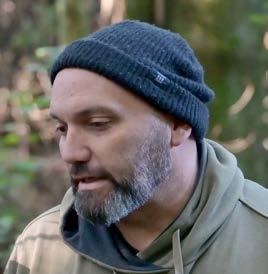
Manu Caddie
(Ngāti Pūkenga, Waitaha-a-Hei, Ngāti Hē)
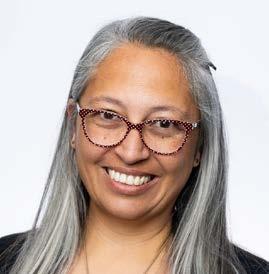
Manu Caddie is an activist and biotech entrepreneur who has founded companies (Hikurangi Bioactives and Rua Bioscience) that have developed and registered health products derived from taonga (treasured) species. He has worked with the World Intellectual Property Organisation and the United Nations Convention on Biological Diversity to ensure recognition of the rights of Indigenous peoples in research and commercial development involving biological organisms. Manu has developed the prototype of a platform enabling kaitiaki (guardians) to deliberate and make decisions as they exercise collective rights and shared responsibilities for the protection and utilisation of taonga species and te taiao (the environment).
Dr Joni AngeliGordon
(Ngāpuhi, Ngāti Whātua, Te Roroa)
Joni’s research at Te Manawahoukura Rangahau Centre, Te Wānanga o Aotearoa spans Indigenous child development, Māori mindfulness, culturally affirming pedagogies, and ancestral parenting practices. She also founded Pīpī Paopao Research Nest, a collective centred on whānau (families) and focused on the flourishing of Indigenous children. Joni works across academic, creative, and community spaces to uplift mātauranga Māori (traditional knowledge), support transformative, relational research pathways. At Te Wānanga o Aotearoa, Joni is part of an institution grounded in Māori knowledge, values, and aspirations, which enables creative, transformative research that is community-embedded and spiritually grounded.

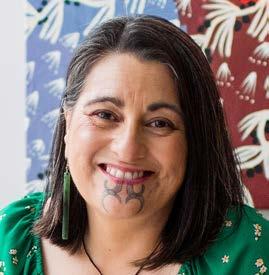
Dr Amohia Boulton
(Ngāti Ranginui, Ngāi te Rangi, Ngāti Pūkenga, Ngāti Mutunga, Te Āti Awa o te Waka a Māui)
After a career in public policy, Amohia completed a PhD and postdoctoral work before joining Whakauae Research Services, a tribally owned and mandated centre for health research. As Director of Whakauae, Amohia has grown a team of highly skilled community-based Māori researchers, and an organisation that is responsive to the needs of whānau, hapū, iwi, and hapori (families and communities). As a researcher and evaluator of kaupapa Māori health services (culturally appropriate healthcare), Amohia also has appointments at Te Herenga Waka –Victoria University of Wellington and at Te Wānanga Aronui o Tāmaki Makaurau – the Auckland University of Technology. Whakauae drives an Indigenous-led research agenda using tikanga (values) to guide organisational decisions and research practice.
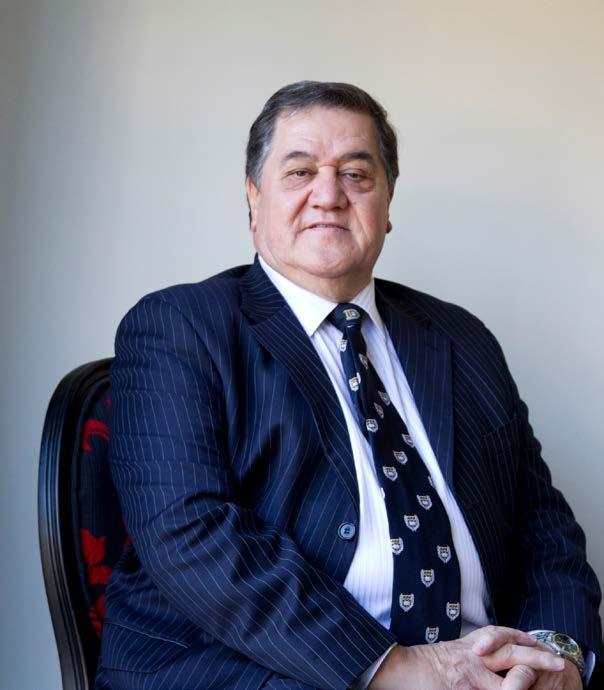
Distinguished Professor
Graham Hingangaroa
Smith CNZM FRSNZ
(Te Aitanga a Hauiti, Ngāti Apa, Ngāti Kahungunu, Ngāi Tahu)
Graham Hingangaroa Smith holds the ‘Te Toi Ihorei ki Pūrehuroa’ Chair, at Te Kunenga ki Pūrehuroa – Massey University. Graham has been granted two honorary doctorates from Canadian institutions, was elected a Fellow of both the American Education Research Association and the Royal Society Te Apārangi, and was appointed a Companion of the New Zealand Order of Merit. His recent work has focused on the notion of ‘transforming research’: a deliberately ambiguous label incorporating both that the outcomes of research need to be transformational, and that the processes of research need to be transformed. He emphasises transforming how we research, as a prerequisite to transforming the inequities that disproportionately accrue to Indigenous populations within colonised contexts. He advocates for research that is not only intended to make a difference, but actually improves the life-chances of Indigenous peoples.

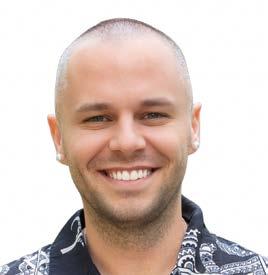
Assistant Professor Jaris Swidrovich
(Saulteaux, Ukrainian)
Jaris Swidrovich is the Indigenous Engagement Lead in the Leslie Dan Faculty of Pharmacy at the University of Toronto, and the Founder and Chair of the Indigenous Pharmacy Professionals of Canada. He is a queer, Two Spirit pharmacist from Yellow Quill First Nation. Jaris is the Co-Scientific Director of nātawihowin (art of self-healing in Cree), which is a First Nations research network that supports researchers, students, health leaders, and communities in Saskatchewan and beyond. Jaris has been awarded the Governor General’s Gold Medal, the Canadian Association for Graduate Studies’ Distinguished Dissertation Award, the National Patient Care Achievement Award from the Canadian Pharmacists Association, and the Queen Elizabeth II Platinum Jubilee Medal for service to the community.
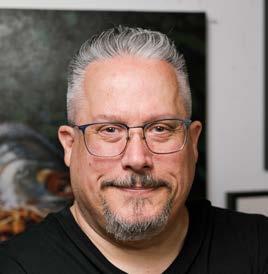
Professor David Garneau
(Métis Nation of Saskatchewan)
David Garneau teaches visual arts at the University of Regina, and is a painter, curator, and writer who engages creative and critical expressions of Indigenous contemporary ways of knowing, being, and doing. He has received the Canadian Governor General’s Award for Outstanding Achievement in Visual and Media Art, and The Order of Gabriel Dumont’s Silver Medal. Garneau has curated many exhibitions and given many public talks in Canada and internationally. His speeches, articles, and book chapters have included themes of re/conciliation, museums, and Indigenous contemporary and public art. He created a performance, Dear John, which toured Canada, and his painting exhibition, Dark Chapters, which is currently touring, is supported by a collection of poems and essays titled Chapters: Reading the Still Lives of David Garneau. David recently installed a large public artwork, the Tawatina Bridge paintings, and designed the Riel Commemorative Silver Dollar for the Canadian Mint.
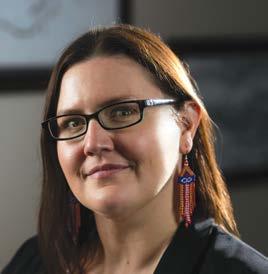
Professor Kisha Supernant
(Métis, Papaschase)
Kisha Supernant is the Director of the Institute of Prairie and Indigenous Archaeology and teaches anthropology at the University of Alberta in Canada. Her research interests include the use of digital technologies in archaeology, Indigenous archaeology, communitydriven research, and heart-centred archaeological practice. Over several years, she has been helping Indigenous communities in western Canada use technology to locate and protect unmarked graves using ground-penetrating radar, remotesensing technologies, and geospatial analysis. She leads a collaborative research project which takes a relational approach to exploring the identities of Métis communities, including her own family, through archaeological study of their material past in western Canada.

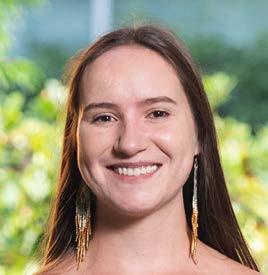
Kahsennarò:roks
Maddy Deom (Kanien’kehá:ka [Mohawk])
Kahsennarò:roks Maddy Deom is a master’s student at the University of British Columbia in Canada, studying with the Centre for Indigenous Fisheries. From Kahnawake Mohawk Territory in Quebec, her work focuses on her community’s knowledge and connection to Teiotién:taron (lake sturgeon, Acipenser fulvescens). She is passionate about integrating Indigenous knowledge with environmental science. Kahsennarò:roks and her lab members in the Centre for Indigenous Fisheries have advocated for Indigenous fishing rights, highlighting how removal of Indigenous fishing gears and traditional sites have threatened Indigenous livelihoods, in contravention of treaty rights across Turtle Island.
What Indigenous research looks like when we set our own research agenda – Australia
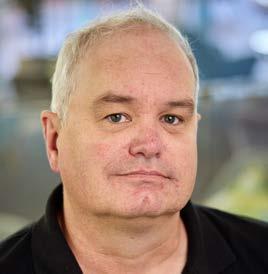
Professor Jason Sharples FTSE
(Wahlabul Bundjalung)
Jason Sharples is a mathematical scientist at the University of New South Wales who is an internationally recognised authority on practice-led bushfire research. Using complex mathematical models, he has studied how to forecast bushfires and predict areas where they could escalate. Jason was an expert witness to both the New South Wales’ Inquiry on the 2019–20 Black Summer bushfires, and the 2020 Royal Commission on National Natural Disaster Arrangements. His paradigm-shifting research has changed theory, policy, and practice for governments, emergency services, and communities. Jason is also a Chief Investigator with the Australian Research Council’s Centre of Excellence for Indigenous and Environmental Histories and Futures, where he is involved in Indigenousled research that explores Indigenous knowledge and cultural practices for fire management. Specifically, he investigates how these practices, which are an intrinsic part of living on Country for Indigenous people, offer sustainable solutions to the worsening global wildfire problem.
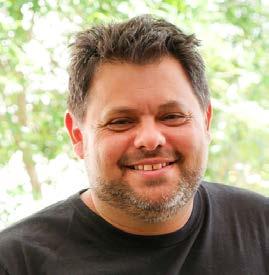
Professor Chris Matthews FTSE (Quandamooka)
Chris Matthews is from the Quandamooka people of Minjerribah (Stradbroke Island) in Queensland, Australia. He is Industry Professor in the School of Mathematical and Physical Sciences, University of Technology Sydney. Chris won the inaugural Indigenous STEM Professional Award from the Commonwealth Scientific and Industrial Research Organisation in 2017. He is leading efforts to transform the science curriculum, and previously advised the Australian Curriculum, Assessment and Reporting Authority on changes to the National Mathematics Curriculum. His research interests extend from mathematics to applied mathematics and mathematics education. Chris has developed an interest in mathematics education for Aboriginal and Torres Strait Islanders, exploring the connections between mathematics and the knowledges of Aboriginal and Torres Strait Islanders, and developing the “Goompi model” – a culturally responsive method for teaching mathematics. Chris is the Founder and Chair of the Aboriginal and Torres Strait Islander Mathematics Alliance.

What Indigenous research looks like when we set our own research agenda – Australia
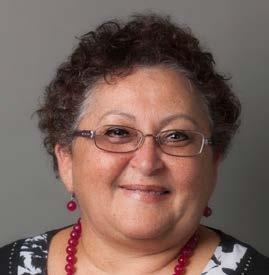
Professor Dawn Bessarab FAHMS
(Bard, Yindjibarndi)
Dawn Bessarab is Director of the Centre for Aboriginal Medical and Dental Health at the University of Western Australia. She is from the West Kimberley and the Pilbara regions. Dawn is a social worker and health researcher who has experience in qualitative research and Indigenous research methodologies. Dawn developed the methodology on research yarning and is internationally recognised for her expertise on Indigenous cultural knowledge. She co-edited and published the first book on Indigenous social work in Australia. Dawn is currently funded by the National Health and Medical Research Council of Australia to lead two research projects exploring quality of life and the impact of hearing loss for older Indigenous people. She is also the Principal Investigator at the Good Spirit Good Life Centre for Research Excellence in Indigenous Ageing and wellbeing.
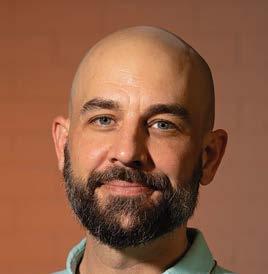
Professor Clint Bracknell FAHA (Noongar)
Clint Bracknell is a song-maker who teaches music at the University of Western Australia. His research investigates connections between song, language, and landscapes, and he works to enable Indigenous communities to access collections of their cultural heritage. He is leading development of a website which showcases Noongar music, song, dance, and language; has co-translated dramatic works in Indigenous languages; and releases and performs Nyoongar music. Clint has served as Chair of the Council for the Australian Institute of Aboriginal and Torres Strait Islander Studies, is a member of Creative Australia’s inaugural First Nations Board, and a Future Fellow of the Australian Research Council. He received the 2020 Barrett Award for Australian Studies and co-edited The Cambridge Companion to Music in Australia

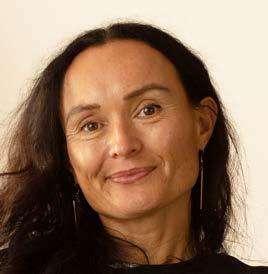
Professor Tahu
Kukutai FRSNZ
(Ngāti Tiipa, Ngāti Māhanga, Ngāti Kinohaku, Te Aupōuri)
Tahu Kukutai is Co-Director of Ngā Pae o te Māramatanga – the Centre of Research Excellence, and a theme leader at Te Ngira Institute for Population Research at Te Whare Wānanga o Waikato – the University of Waikato. Her research is focused on Māori and Indigenous demography and data sovereignty. Tahu has undertaken research for many tribes, Māori communities, and Government agencies, and provided strategic advice across a range of sectors. She is a founding member of the Global Indigenous Data Alliance and Te Mana Raraunga – the Māori Data Sovereignty Network. Tahu has been awarded Life Membership of the Population Association of New Zealand.
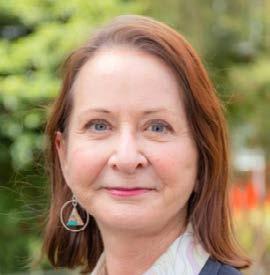
Distinguished Professor
Emerita Maggie Walter FASSA (Palawa)
Maggie Walter is Palawa, a member of the Tasmanian Aboriginal Briggs family, and is Distinguished Professor Emerita at the University of Tasmania. Maggie’s research challenges standard explanations for Indigenous inequality including how Indigenous data are understood and used. She writes extensively on Indigenous data and data sovereignty, and Indigenous research methodologies. Maggie is a founding member of Maiam nayri Wingara – the Australian Indigenous Data Sovereignty Collective and an executive member of the Global Indigenous Data Alliance. From 2021 - 2025 she was a Commissioner with the Yoorrook Justice Commission, Australia’s first truth-telling inquiry into the systemic injustices experienced by First Peoples in Victoria during colonisation.
Strategic connections in international Indigenous research
This workshop will focus on opportunities to connect our networks to strengthen the international Indigenous research agenda. It will review existing international networks for Indigenous research, and ask how we currently leverage them. The group will consider opportunities and gaps for the future, including strategies and tools for building sustainable, reciprocal relationships.
This workshop will discuss the creation of Indigenous research spaces. What do they look like? How do we build spaces that contribute to Indigenous knowledge, strengthen Indigenous peoples, and build Indigenous research communities? How can Indigenous research spaces help to lead and shape research agendas to include Indigenous knowledge, practices, and peoples? What steps can we take to create Indigenous research spaces within, between, and outside of our institutions?

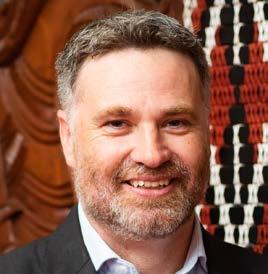
Dr Carwyn Jones
FRSNZ
(Ngāti Kahungunu)
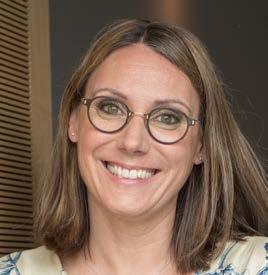
Carwyn Jones is the lead academic in the Māori Laws and Philosophy programme at Te Wānanga o Raukawa and an Honorary Adjunct Professor at Te Kawa a Māui, the School of Māori Studies at Te Herenga Waka – Victoria University of Wellington. His work focuses on Māori legal traditions, tikanga Māori, Indigenous jurisprudence, and the understanding and application of Māori law within Aotearoa New Zealand. He is the author of the book New Treaty, New Tradition: Reconciling New Zealand and Māori Law and co-editor of the Māori Law Review. He has worked at the Waitangi Tribunal, the Māori Land Court, and the Office of Treaty Settlements.
Professor Annie Pullen Sansfaçon
(Wendat Nation)
Annie Pullen Sansfaçon is a Professor of Social Work at the University of Montreal in Tiohtià:ke and holds a Tier 1 Canada Research Chair in Partnership Research and Empowerment of Vulnerable Youth. She is also Deputy Vice-Rector for First Peoples Engagement and Participatory Methodologies within the Office of the Vice-Rector, Global Engagement and First Peoples. Annie is the Co-Founder and Co-Director of CRI-JaDE, the Interdisciplinary Research Center on Intersectional Justice, Decolonization and Equity. Her research focuses on the wellbeing of vulnerable youth, ethics, and anti-oppression. Her work has been recognised with Quebec’s Rights and Freedoms Award, a National Assembly Medal, and the King Charles Medal for facilitating social and legal changes for transgender youth and their families. She was elected to the College of New Scholars, Artists and Scientists of the Royal Society of Canada in 2023.

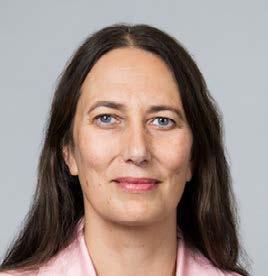
Distinguished
Professor Jacinta
Ruru MNZM FRSNZ (Raukawa, Ngāti Ranginui)
Jacinta Ruru is Deputy ViceChancellor Māori at Ōtākou Whakaihu Waka – the University of Otago. Jacinta researches how state legal systems should recognise Indigenous peoples, and their laws and knowledges. In Aotearoa New Zealand, she has studied how law and policy can uphold Te Tiriti o Waitangi (the 1840 agreement) by enabling Māori to contribute towards caring for, owning, managing, and governing lands and waters. She has advanced innovative options including granting legal personhood to natural features such as mountains and rivers, and providing bijural legal education that recognises Māori legal traditions. Her work includes co-authoring Discovering Indigenous Lands: The Doctrine of Discovery in the English Colonies, coediting Ngā Kete Mātauranga. Māori Scholars at the Research Interface, and Books of Mana: 180 Significant Māori Non-Fiction Books. In 2025, Jacinta was awarded the Humanities Aronui Medal.
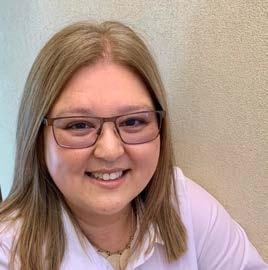
Associate Prof
Shino Konishi FAHA (Yawuru)
Shino Konishi is a historian with the School of Humanities at the University of Western Australia. Her research explores Indigenous and colonial history, including representations of Aboriginal peoples, cross-cultural encounters in Australia, and European exploration in Australia and the Pacific. She is the author of The Aboriginal Male in the Enlightenment World and coauthor of The Lives and Legacies of a Carceral Island: a Biographical History of Wadjemup/Rottnest Island She has also edited several books, most recently co-editing Reframing Indigenous Biography. Shino is currently an Australian Research Council Future Fellow, undertaking a project on Western Australian Aboriginal history.
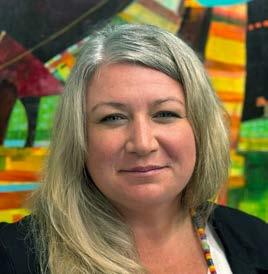
Professor Aimée Craft (Anishinaabe-Métis)
Aimée Craft holds a University Research Chair Nibi miinawaa aki inaakonigewin: Indigenous governance in relationship with land and water at the University of Ottawa and is Chair of the Manitoba Clean Environment Commission. She is a lawyer from Treaty One territory in Manitoba. Aimee prioritises Indigenous-led and interdisciplinary research on Indigenous laws, treaties, and decolonising water governance, and works with many Indigenous nations and communities on their relationships with and responsibilities to nibi (water). She shares her findings in a range of media, including visual arts and film. Treaty Words, her critically acclaimed children’s book, explains treaty philosophy and relationships. She plays an active role in international collaborations relating to transformative memory in colonial contexts and the reclamation of Indigenous birthing practices as expressions of territorial sovereignty.

Keynote: Creating a thriving Indigenous academy
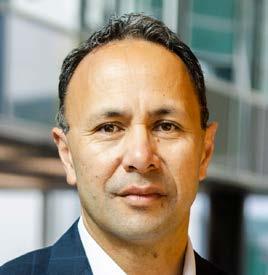
Toeolesulusulu
Professor Damon Salesa FRSNZ
(Satpuala, Neiafu, Falealupo)
Damon Salesa is Vice-Chancellor of Te Wānanga Aronui o Tāmaki Makaurau – the Auckland University of Technology (AUT), and Chair of the International Committee for Te Pokai Tara – Universities New Zealand. A Samoan, he was a Rhodes Scholar and was awarded his doctorate at Oxford. Damon has focused his research and teaching on history, society, economics, education, and politics in both New Zealand and the Pacific, with special expertise in colonialism and globalisation in the Pacific region. Damon has published award-winning books – Island Time, Racial Crossings, and An Indigenous Ocean – on the intersections of race, identity, and power in the Pacific region. He leads AUT’s task-force on artificial intelligence, and is active in education, innovation, and Pacific scholarship.
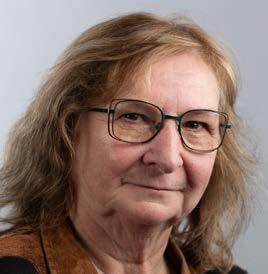
Assistant Professor
Marti Ford (Inuk)
Marti Ford is the Associate Dean of Indigenous Education at the University of Manitoba. Marti’s research, including at the University of Minnesota Duluth, has focused on the education and development of young Indigenous people. She has specialised in supporting community-led initiatives to create inclusive, culturally grounded learning environments. Marti has extensive experience in the education sector, serving as a teacher, principal, and superintendent. She has travelled across Inuit Nunangat, and is past President and Board Chair of the Manitoba Inuit Association. Marti has also worked internationally with Indigenous communities in Botswana, Chile, and Brazil.
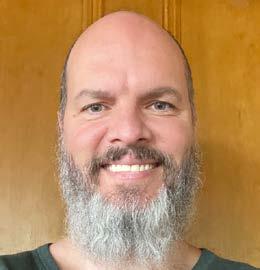
Professor Yin
Paradies FAHA FASSA (Wakaya)
Yin Paradies is the Alfred Deakin Professor and holds the Chair in Race Relations at Deakin University. His research focuses on the health, economic, and societal effects of racism, and he has also studied Indigenous knowledges, anti-racism, cultural safety, gender studies, mental health, ethnic identities, disability and obesity, and decolonisation. His expertise spans psychology, health, and criminology. Yin has written more than 270 publications, including the first global systematic review and meta-analysis on racism and health. He was a co-author of the Lancet Series on racism, xenophobia, discrimination, and health. Yin’s research has informed national and international policies to prevent racebased discrimination and support diversity, and he is an expert advisor to the Australian Human Rights Commission.


Emeritus Professor Poia
Rewi FRSNZ
(Ngāti Manawa, Tūhoe, Te Arawa)
Poia Rewi was until recently Chief Executive of Te Mātāwai, an organisation which supports revitalisation of te reo Māori (language) by supporting hapori (communities). Alongside language revitalisation, his teaching, research, and practice have encompassed whaikōrero (oratory), tikanga (customs), Māori performing arts, and Māori history. Poia has also led Te Taura Whiri i te Reo Māori –the Māori Language Commission, and served as Dean of Te Tumu – the School of Māori, Pacific, and Indigenous Studies at Ōtākou Whakaihu Waka – the University of Otago. Poia currently works with Kanapu, an initiative by Ngā Pae o te Māramatanga – the Centre of Research Excellence, to ignite Māori talent and leadership across rangahau, research, science, innovation, and technology. Poia is happily married with children and mokopuna (grandchildren).
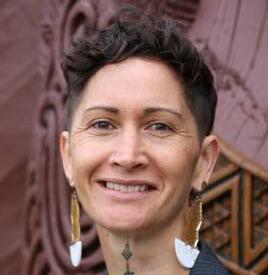
Associate Professor
Deborah Heke (Ngā Puhi, Te Arawa)
Deb Heke is Director of Ngā Wai a Te Tūī Māori and Indigenous Research Centre at Unitec. She has a background in exercise physiology, psychology, and Māori health, and her current research centres on Mana Wāhine scholarship and the relationship between wāhine, movement, the natural environment, and wellbeing. Recent work includes an exploration of Māori and Indigenous women’s embodied practices and physical activity in te taiao (the environment) as a means for connecting, communicating, and healing. Deb is also passionate about building the capability and capacity of Māori and Indigenous scholars, and providing spaces for Indigenous creativity and excellence in academia. She is the current National Strategy Lead for the Māori and Indigenous doctoral network – Te Kupenga o MAI, which is an initiative from Ngā Pae o te Māramatanga.
Sharing actionable measures
This workshop speaks to all three summit themes (leading and shaping research agendas, indigenising the academy, and transforming academia for Indigenous peoples) with the aim of developing actions and ideas on who could take the measures forward or what further steps would be needed to progress them.
Indigenous workforce in research, science, and innovation
In this workshop, participants will be asked to share successes, challenges, and what they would like to see happen to support the acceleration of the Indigenous workforce. This might include systems change, and actions for the three academies, and refer to earlier discussion concerning connections and Indigenous research spaces. What is working? What needs to happen?

Keynote: Indigenous thought leadership (Canada)
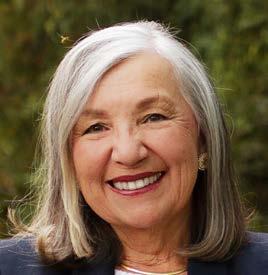
Professor Emerita
Marie Battiste OC FRSC (Mi’kmaw)
Marie Battiste is Professor Emerita at the University of Saskatchewan, where she taught for 28 years. She is a member of the Potlotek First Nation in Unama’ki. With more than six degrees and honorary degrees from universities including Harvard and Stanford, Marie continues research and writing on decolonising education, cognitive justice through balancing diverse knowledge systems and languages, and protecting Indigenous knowledges. She has published widely, authoring Decolonizing Education: Nourishing the Learning Spirit (2013) and co-authoring Protecting Indigenous Knowledge and Heritage: A Global Challenge (2000) and Protecting Indigenous Knowledge and Heritage: A Canadian Obligation (2024). Her edited collections include Visioning Mi’kmaw Humanities: Indigenizing the Academy; Living Treaties: Narrating Mi’kmaw Treaty Relations; Reclaiming Indigenous Voice and Vision; and First Nations Education in Canada: The Circle Unfolds.
Keynote: Indigenous thought leadership (Australia)
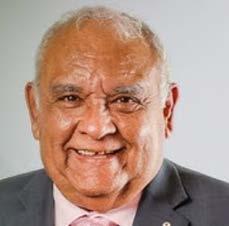
Professor Tom Calma AO FAA FASSA FAHA (Kungarakan, Iwaidja, Woolwonga)
See bio page 16

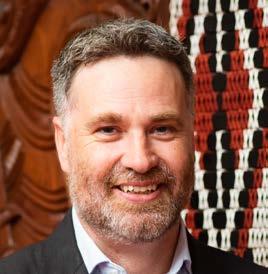
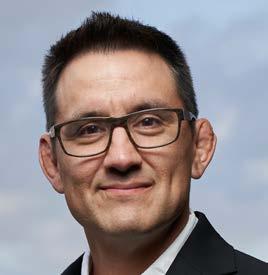

Chair: Dr Carwyn Jones
FRSNZ
(Ngāti Kahungunu)
See bio page 27
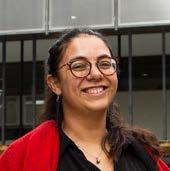
Professor Frank Deer
(Kanienkeha’ka)
See bio page 16
Professor Helen Moewaka
Barnes FRSNZ
(Te Kapotai, Ngāpuhi)
See bio page 16
Associate Professor Sereana Naepi (Naitasiri, Fiji)
Sereana Naepi is a Rutherford Discovery Fellow at Waipapa Taumata Rau – the University of Auckland. As a Pacific researcher and educator from Fiji, her work critically examines the intersections of equity, decolonisation, and systemic change in academia. Her academic study has included work at the University of British Columbia and Thompson Rivers University in Canada. Sereana’s research explores the intersection of neoliberalism, decolonisation, Indigenous rights, and equity in higher education. Sereana prioritises interdisciplinary and communitydriven research, and uses Pacific research methodologies which are grounded in the cultural values and knowledge systems of Indigenous communities, emphasising relationality, reciprocity, and respect. This ensures that her research is meaningful and empowering for Pacific communities and creates realworld impacts. Beyond her academic pursuits, she has made positive contributions to advancing equity in the higher education, university, and research sectors.
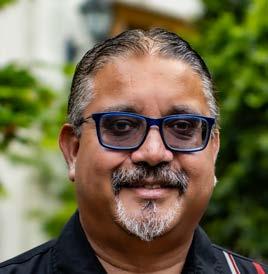
Professor
Reuben Bolt
(Yuin/Wandandian, Monaro/Ngarigo)
Reuben Bolt is the Deputy ViceChancellor, Indigenous Strategy and Services at the University of Sydney. He has years of experience in educational leadership, and previously served as Deputy ViceChancellor, First Nations Leadership, at Charles Darwin University. Reuben is the first Aboriginal appointee to the National Science and Technology Council, where he champions the recognition of Indigenous knowledge systems, prioritising those of Aboriginal and Torres Strait Islanders. Reuben’s research spans Indigenous studies, health science, microsociology, business administration, media, and arts, with particular research interests in Indigenous knowledge and identity. His research has included innovative use of modern technologies to capture and share Indigenous astronomical knowledge. Reuben is passionate about influencing policy, and delivering positive outcomes in Indigenous communities through culturally appropriate interventions.

Pōwhiri
A traditional Māori welcome ceremony for manuhiri (visitors), to recognise the coming together of two groups separated both physically and spiritually, in a powerful expression of manaakitanga (hospitality) and kotahitanga (unity).
Our hau kāinga (hosts) at AUT will be represented by senior leadership and by members of Tītahi ki TUA - the Māori Students’ Association at AUT. These tauira (students) will support the pōwhiri and other activities such as kapa haka later in the programme.
The tikanga (cultural protocol) for the pōwhiri will be explained from 1:30pm. If you are uncertain about anything, please just ask one of the kaimahi (staff) from the Royal Society Te Apārangi, who will help to guide delegates.
The pōwhiri is based on the protocol for AUT (noting that other iwi (tribes) and regions of Aotearoa may not follow exactly the same tikanga).
A karanga (call of welcome) is performed by wāhine (women), acknowledging the living and the dead, and inviting manuhiri forward. The first voice you hear in welcome will always be of a wahine because of her power to negate tapu (sacredness) and negative influences.
Whakaeke
Whakaeke is the physical movement of the manuhiri onto the marae (typically the the open area in front of a traditional carved meeting house, but otherwise a formal space for meeting). When you arrive at the waharoa (entrance), wāhine will move to the front and tāne (men) to the back. If you identify as non-
binary or gender-diverse, feel free to situate yourself in the centre of the group. As the karanga begins and you start to move to your seats, wāhine will sit in the back row of seats and tāne in the front. Again, please feel free to choose the centre-row seats. Once the hau kāinga (hosts) are seated, everyone else can sit.
Whaikōrero
Whaikōrero are formal speeches delivered by selected speakers (usually tāne, but not always).
The whaikōrero will be in te reo Māori, the Indigenous language of Aotearoa. To preserve the sacredness of tīkanga (tradition) and mātauranga (Māori knowledge) the whaikōrero will not be translated into English.

Waiata tautoko
Waiata tautoko is a song performed after each speech to support and enhance the mana (authority) of the speaker. Please join the waiata tautoko for the speaker representing the manuhiri.
Harirū and hongi
Following the formal speeches, manuhiri will move across the ātea (the space between) to harirū (shake hands) and hongi (press noses), symbolising the joining of hā (breath) and mauri (life force).
Kai
The final act of the pōwhiri is the sharing of kai (food); this lifts the tapu between the manuhiri and hau kāinga.
In and around the campus TBC
Experience a kapa haka performance followed by a buffet dinner with traditional kai.
Wānanga are gatherings where people come together to discuss, deliberate, and consider different perspectives. Wānanga encourage open-minded participation and the creation of new knowledge.
The tribal affiliations or ethnic identities of our Indigenous experts are noted in parentheses. For Māori, these are affiliation to an iwi (tribe) through whakapapa (genealogy or descent).
Throughout the programme, there will be opportunities to share your thoughts. There will be roving microphones, or you can use the Slido App to ask questions.
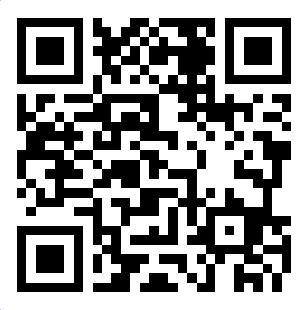
Nā Kereti Rautangata
Ko te aroha anō he wai
E pūpū ake ana
He awa e māpuna mai ana
I roto i te whatumanawa
Ko tōna matapuna he hōhonu
A ina ia ka rere anō
Ko tōna matapuna he hōhonu
A ina ia ka rere anō
He tai timu
He tai pari
He tai ope
He tai roa
He tai nui, he tai nui, he tai nui
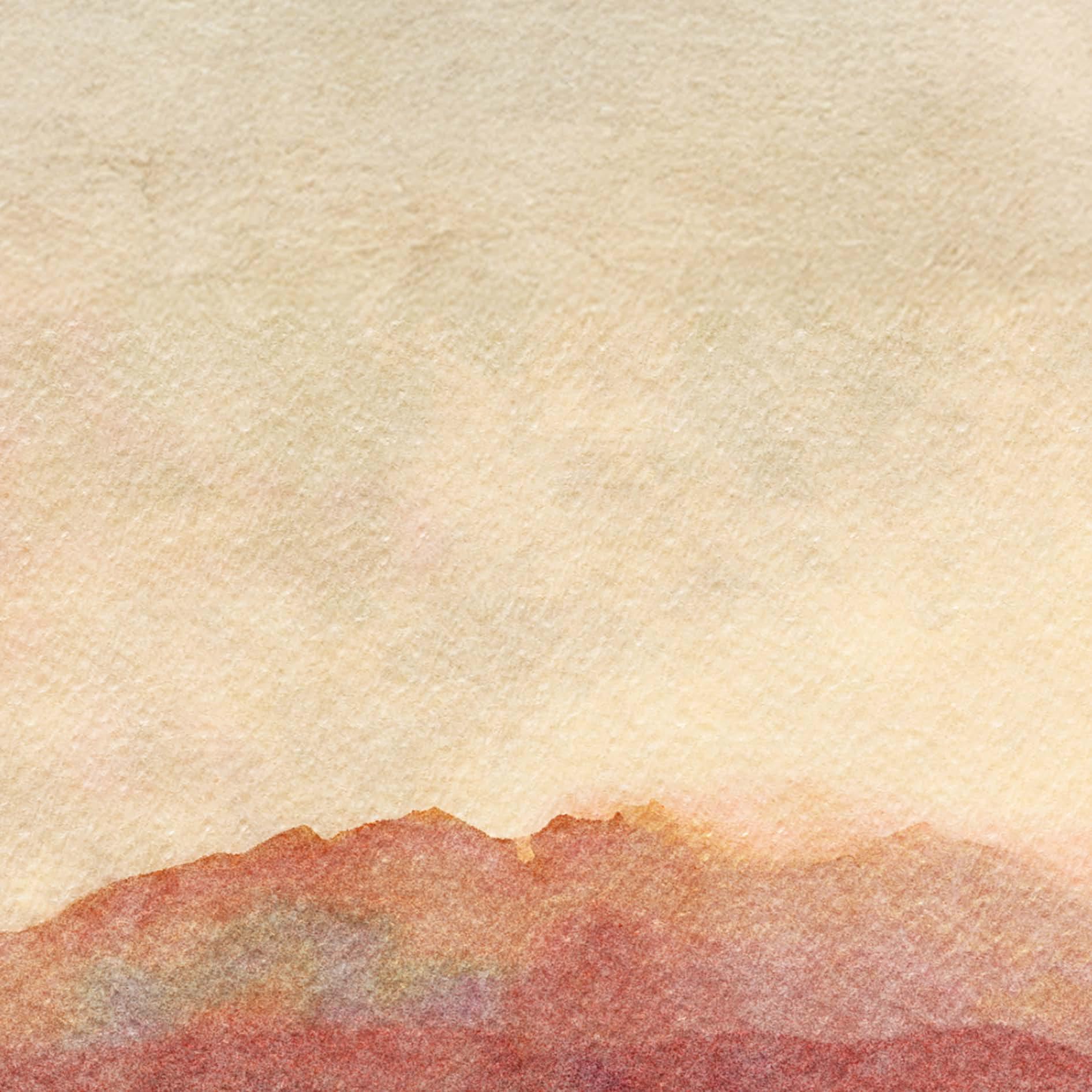

Love is an inspiration
That wells up
Like a river that springs
From the love of your heart
Its roots are deep
And when it flows
It becomes an ebbing and flowing tide
A collective synthesising tide, an endless tide
Indeed a great tide.
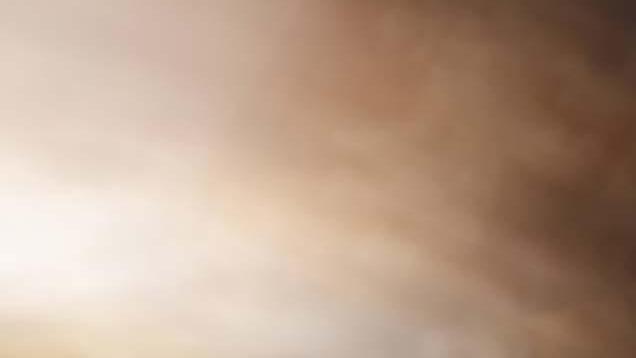
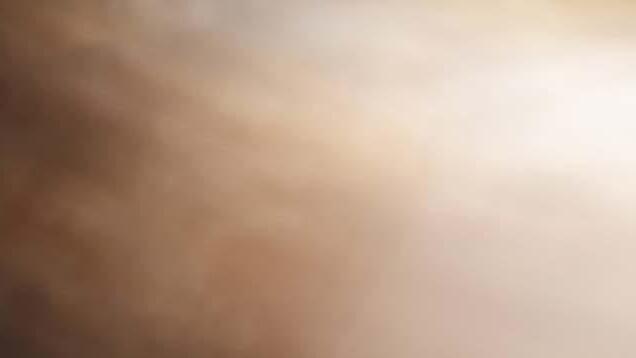






Nā Hirini Melbourne
rāua ko Henare Mahanga
Purea nei e te hau
Horoia e te ua
Whiti whitia e te rā
Mahea ake ngā pōraruraru
Makere ana ngā here.
Nā Hōhepa Tamehana

E rere wairua, e rere
Ki ngā ao o te rangi
Whiti whitia e te rā
Mahea ake ngā pōraruraru
Makere ana ngā here,
Makere ana ngā here
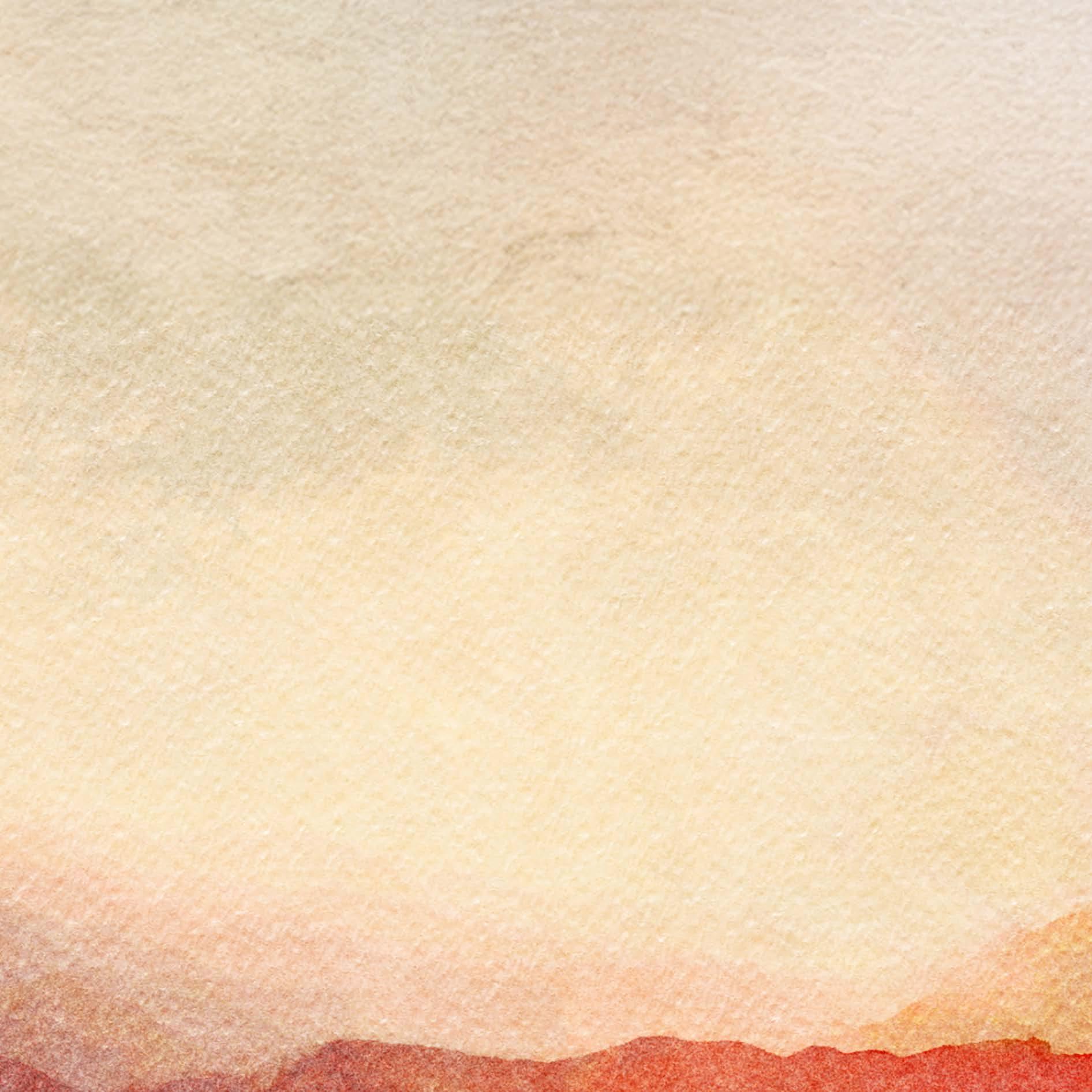
Scattered by the wind
Washed by the rain
And transformed by the sun,
All doubts are swept away
And all restraints are cast down.
Fly o free spirit, fly
To the clouds in the heavens,
Transformed by the sun,
With all doubts swept away
And all restraints cast down.
Yes, all restraints are cast down.
Rere tōtika rere pai
Rere ranga rawa rā e
Mā te kahukura ka rere te manu
(Mā ngā huruhuru e)
Ka rere koe
(Rere runga rawa rā e)
Ka tae atu koe ki te taumata
Whakatau mai rā e
Mau ana taku aroha
Whai ake i ngā whetū
Rere tōtika rere pai
Rere runga rawa rā e
Rere tōtika rere pai
Rere runga rawa rā e
Fly straight, fly true
Soar high towards the heavens
Take flight like a bird that
Is adorned with
The colours of the rainbow
You fly
Soar high towards the heavens
And as you arrive
There is where you may rest
Cloak yourself with my love
Follow the pathway to the stars
Fly straight, fly true
Soar high towards the heavens

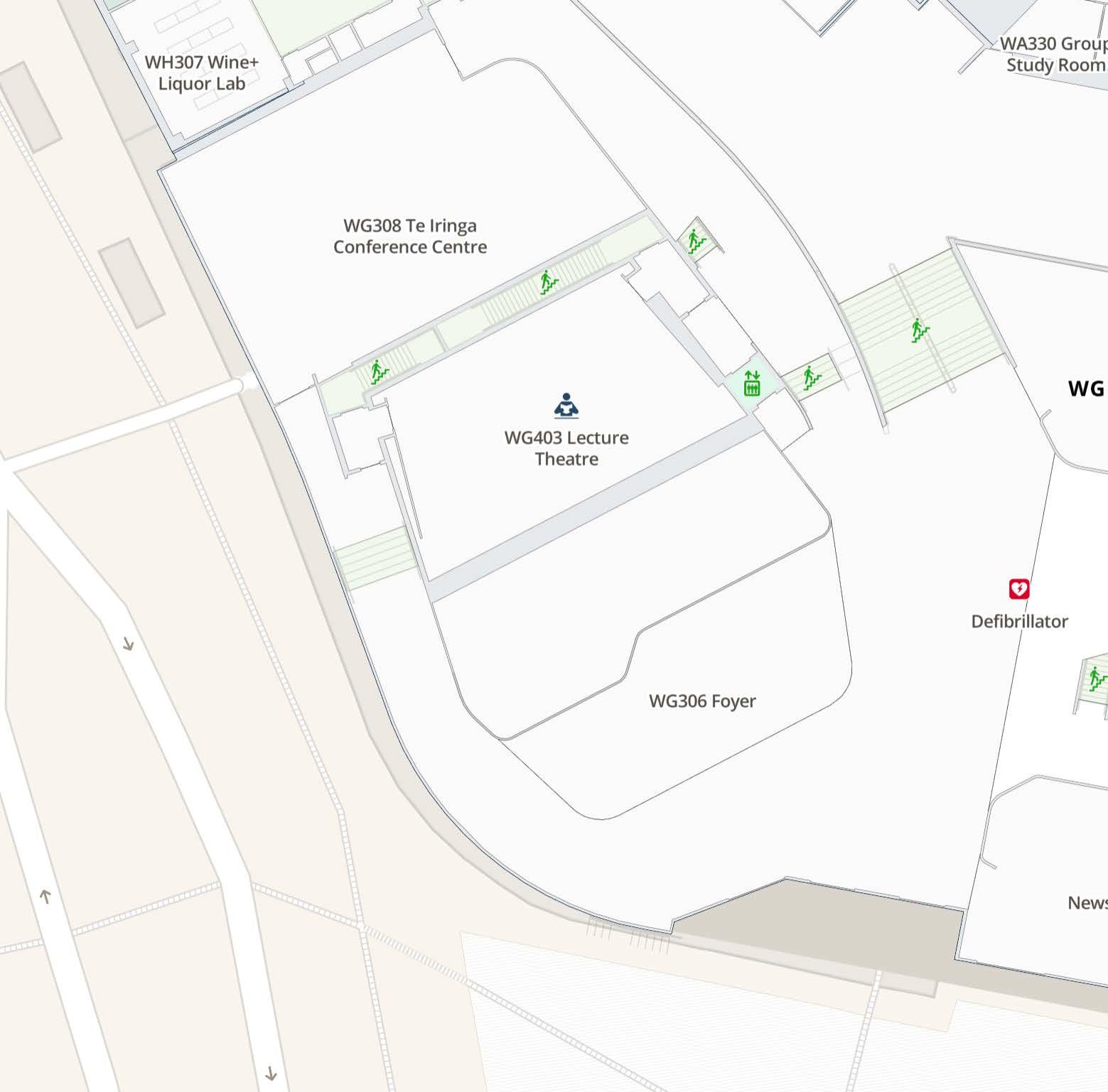
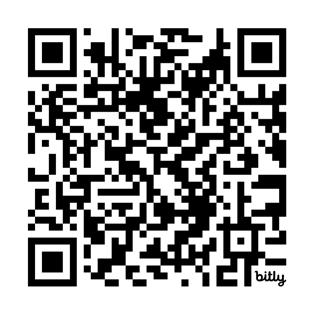
55 Wellesley Street East, Auckland

SCHOOLS
Art & Design – Level 3, WE building
Business – Level 1, WF building
Communication Studies – Level 12, WG building
Engineering, Computer & Mathematical
Sciences – Level 3, WZ building
Future Environments - Level 11, WG building
Hospitality & Tourism Reception – Level 3, WH
building
Law – Level 3, WY building
Science – Level 1, WS building
SERVICES AND FACILITIES
AUT International – Level 16, WO building
AUT Security – Corner St Paul & Wakefield
St, WO building
AUT Shop – WH102, WH building
WC building
The Summit will be in AUT’s Sir Paul Reeves Building, marked WG in the map above. The Building can be accessed via Mayoral Drive or from Governor Fitzroy Place. Sir Paul Reeves ONZ GCMG GCVO QSO KStJ was the first Governor-General of Māori descent and the third Chancellor of AUT. aut.ac.nz/about/campuses-and-locations/city-campus
Social Sciences & Humanities Reception – Level 3,
WB building
Te Ara Poutama Reception– Level 3, WB building
STUDENT HUB
Level 2, WA building
AUT Student Association (AUTSA) – Level 2,
All rooms and spaces are fully accessible with wheelchair access via lifts. For further information about accessibility to Taikura, please contact marc.rands@royalsociety.org.nz.
Library – Level 4, WA building
PinkLime (print services) – Level 3, WA building
Student Accommodation & Recreation
Centre – WQ building
Public parking nearby is limited. AUT’s website has information on parking around campus and mobility parking spaces. There is Wilson Parking in the WO Building, 56 Wakefield Street.
Student Counselling & Mental Health –
WB204, WB building
Student Medical Centre – WB219, WB
building
aut.ac.nz/student-life/around-campus/getting-aroundaut/student-parking
Tech Central – Level 4, WA building



The Australian Academy of Science is an independent organisation of distinguished Australian scientists, championing science for the benefit of all. Our mission is to advance Australia as a nation that embraces scientific knowledge and whose people enjoy the benefits of science.
A self-governing Fellowship of many of Australia’s distinguished scientists, the Academy was founded on 16 February 1954 by Australian Fellows of the Royal Society of London with the distinguished physicist Sir Mark Oliphant as founding President.
Incorporated by Royal Charter, the Academy is a not-for-profit registered charity, governed by a Council elected by and from the Fellowship.

The Royal Society of Canada recognizes leaders in order to help them build a better future in Canada and around the world. The RSC exists to: promote Canadian research and scholarly accomplishment in both of Canada’s official languages; advise governments, nongovernmental organizations, and Canadians generally on matters of public interest; recognize academic and artistic excellence; and to mentor young scholars and artists
Mission of the RSC: To serve Canada and Canadians by recognizing Canada’s leading intellectuals, scholars, researchers and artists and by mobilizing them in open discussion and debate, to advance knowledge, encourage integrated interdisciplinary understandings and address issues that are critical to Canada and Canadians.
Vision of the RSC: The RSC is the recognized pre-eminent body of independent scholars, researchers and creative people in Canada whose Members comprise a collegium that can provide intellectual leadership for the betterment of Canada and the world.
The Royal Society Te Apārangi is an independent not-for-profit organisation, incorporating New Zealand’s Academy for the sciences, technology, and the humanities, and a broad network of Fellows, Companions, Members, and Member organisations around New Zealand. Our work advances education, promotes public understanding, and supports scientists and researchers through project grants, career grants, journal publications, international appointments, guidelines, and other knowledge infrastructure. We also award medals and prizes for research excellence, and provide independent advice to the government and the people of New Zealand on issues of public concern.



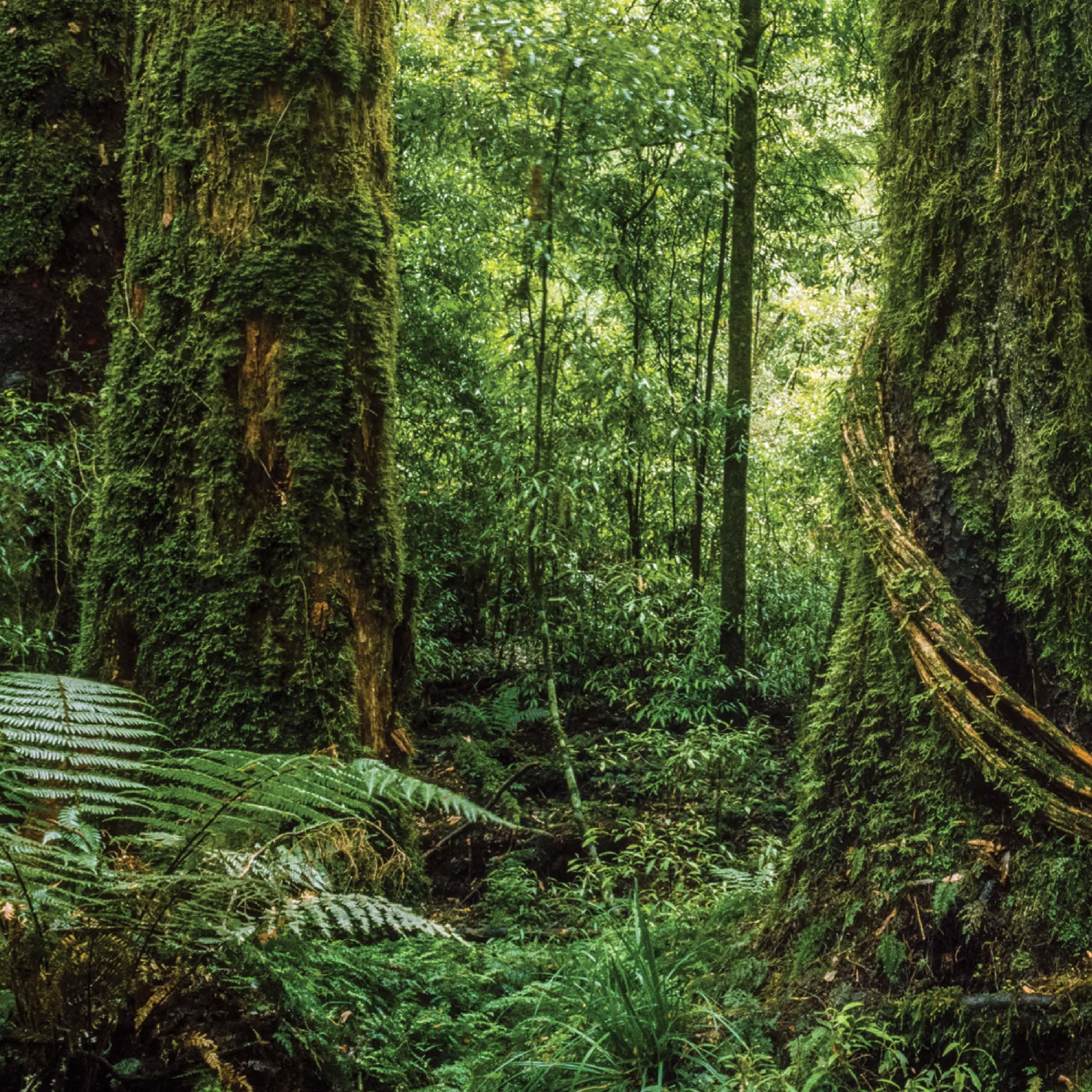


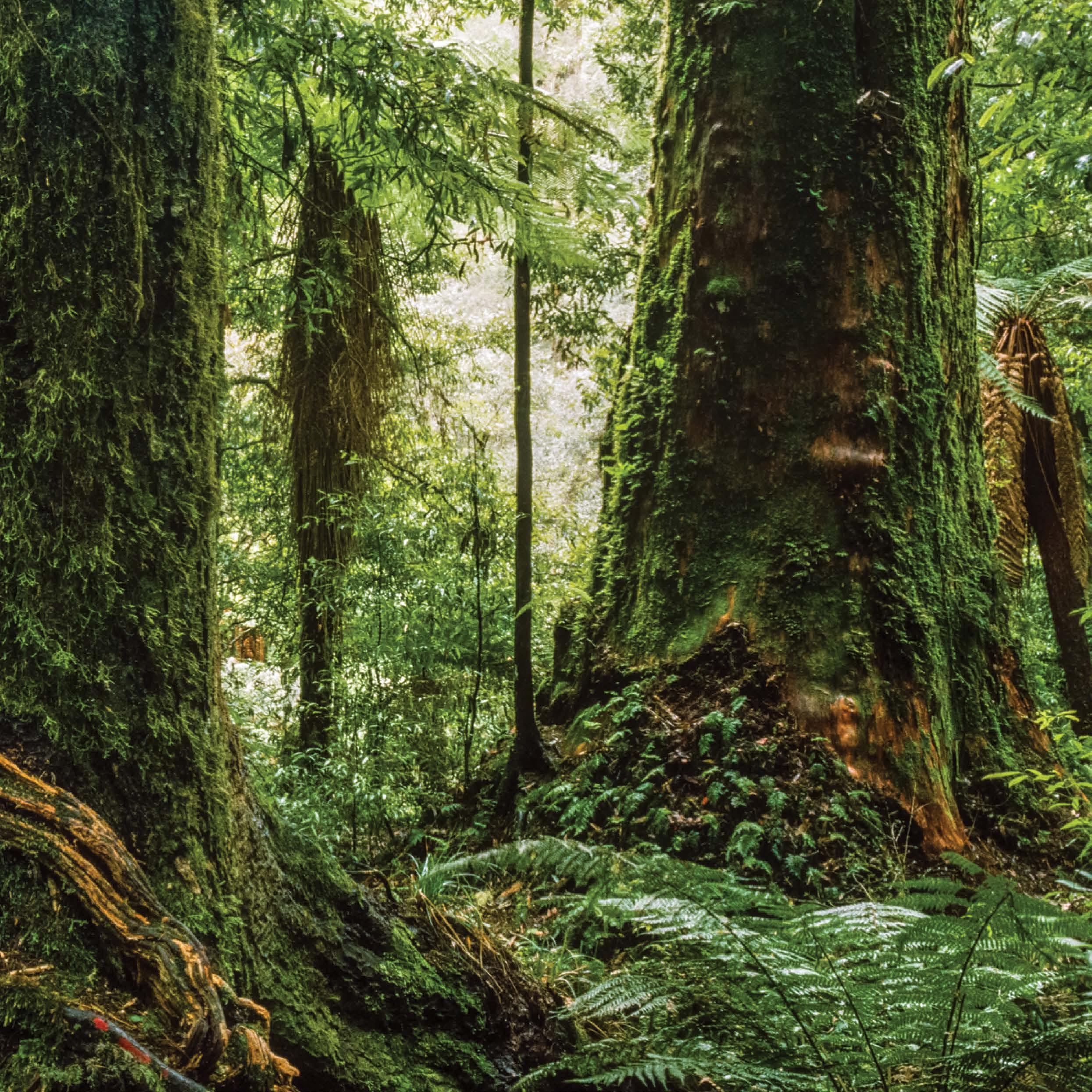
WHAKAPĀ MAI | CONNECT WITH US royalsociety.org.nz
RoyalSocietyNZ
@royalsocietynz
Royal Society Te Aparangi

Royal Society Te Apārangi
11 Turnbull Street, Thorndon, Wellington 6011 PO Box 598, Wellington 6140, New Zealand T +64 4 472 7421
ROYALSOCIETY.ORG.NZ
